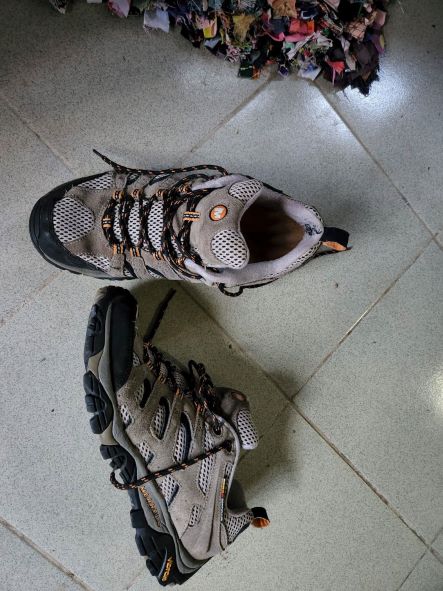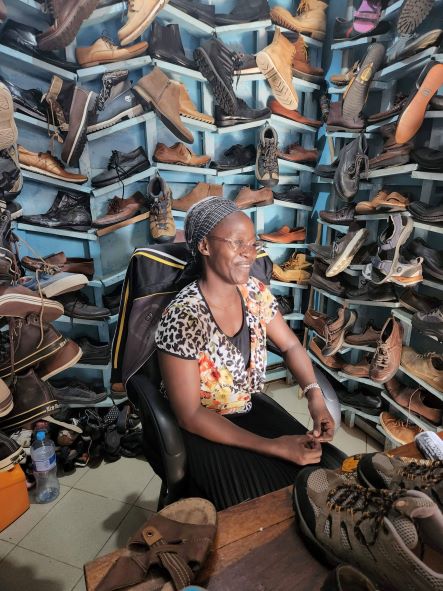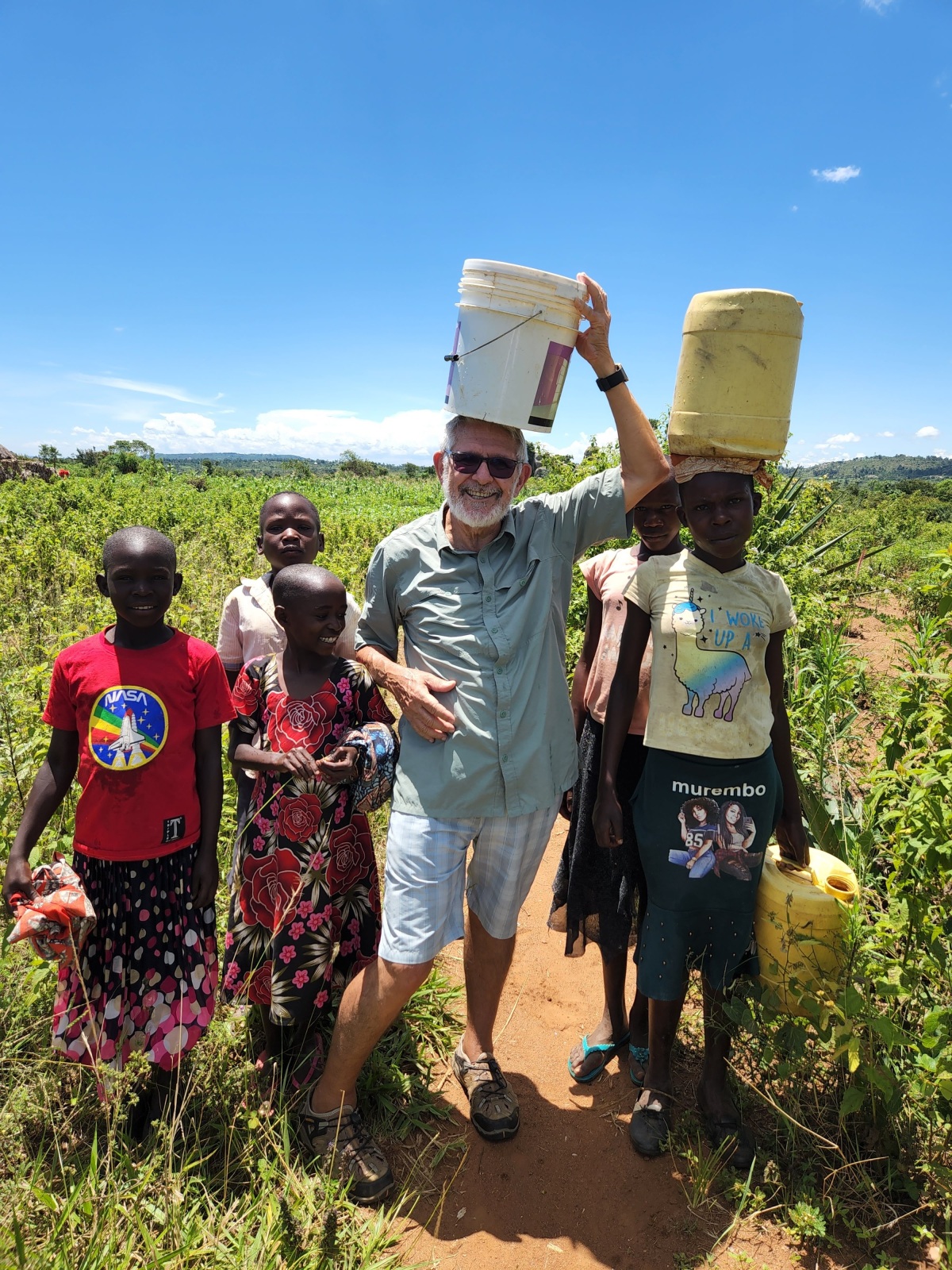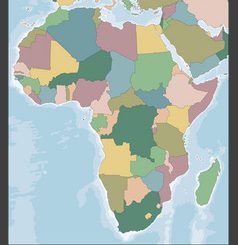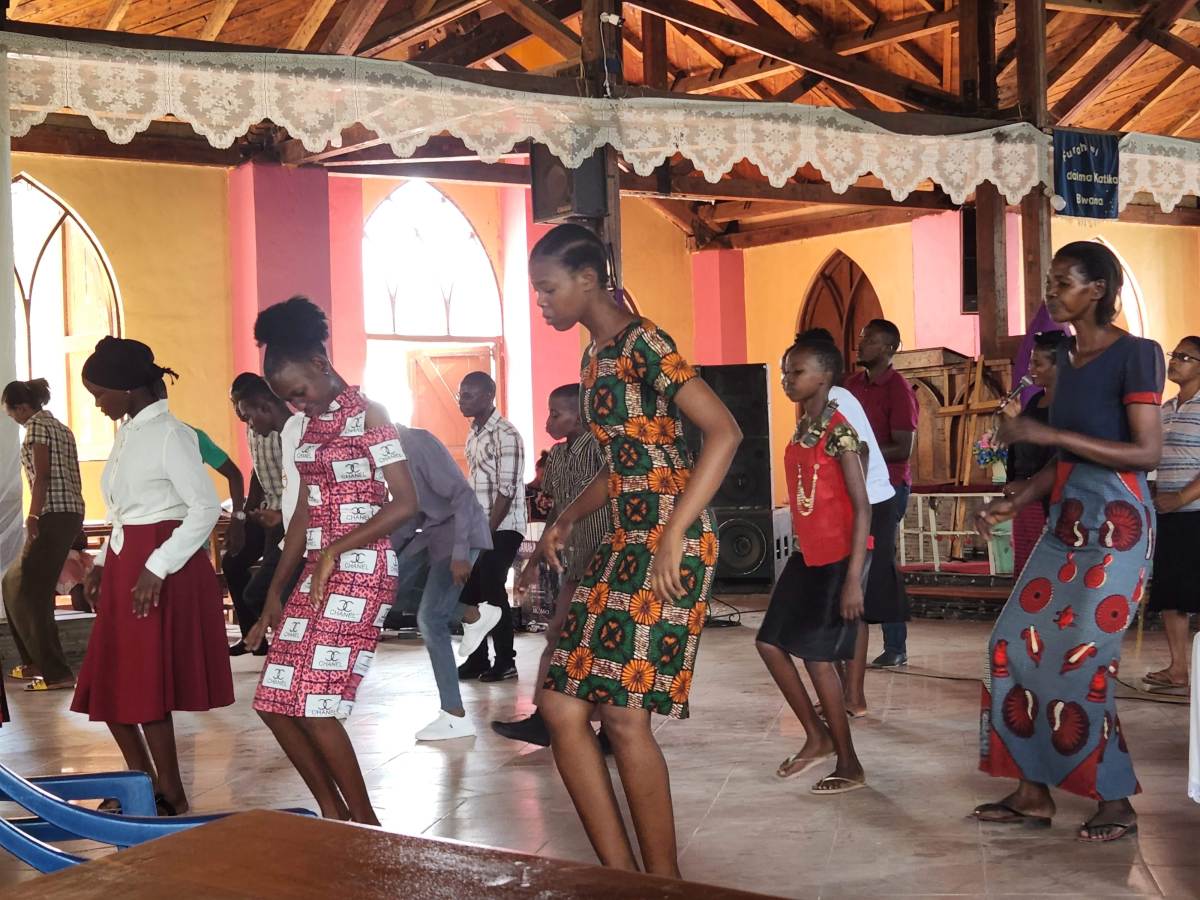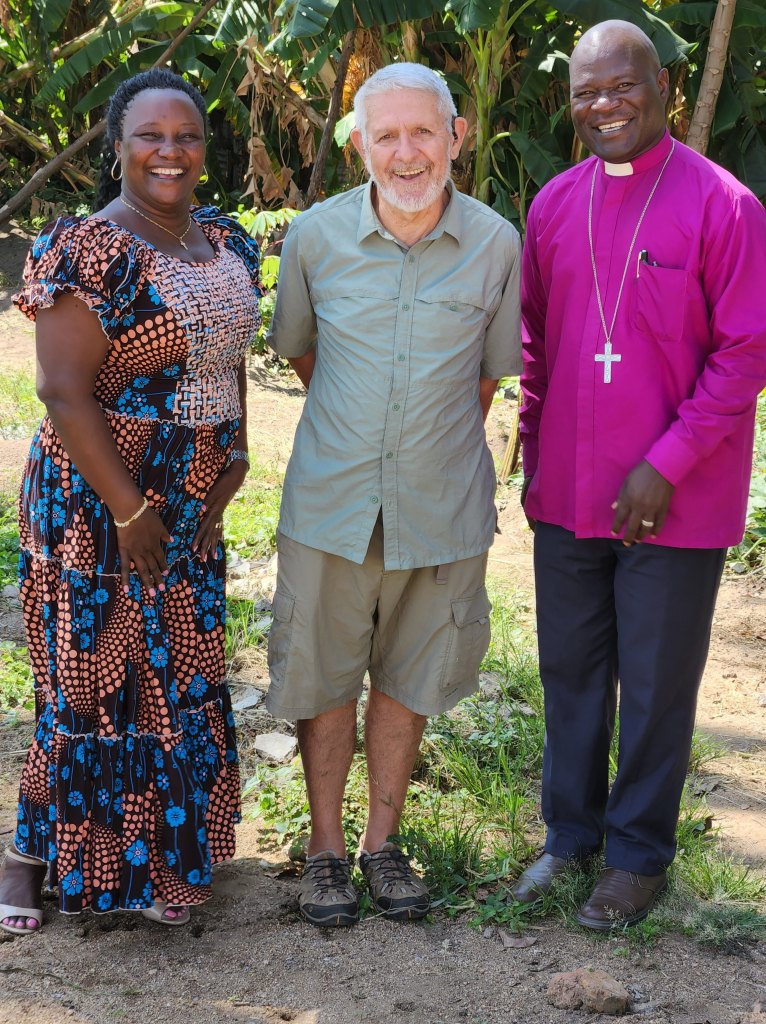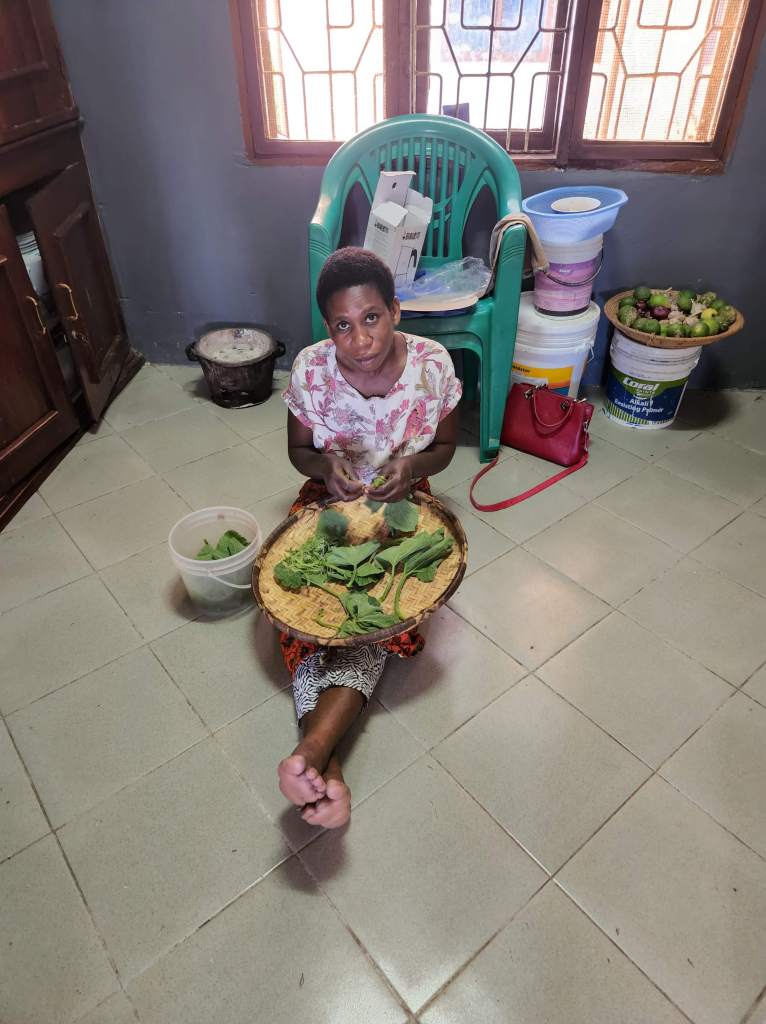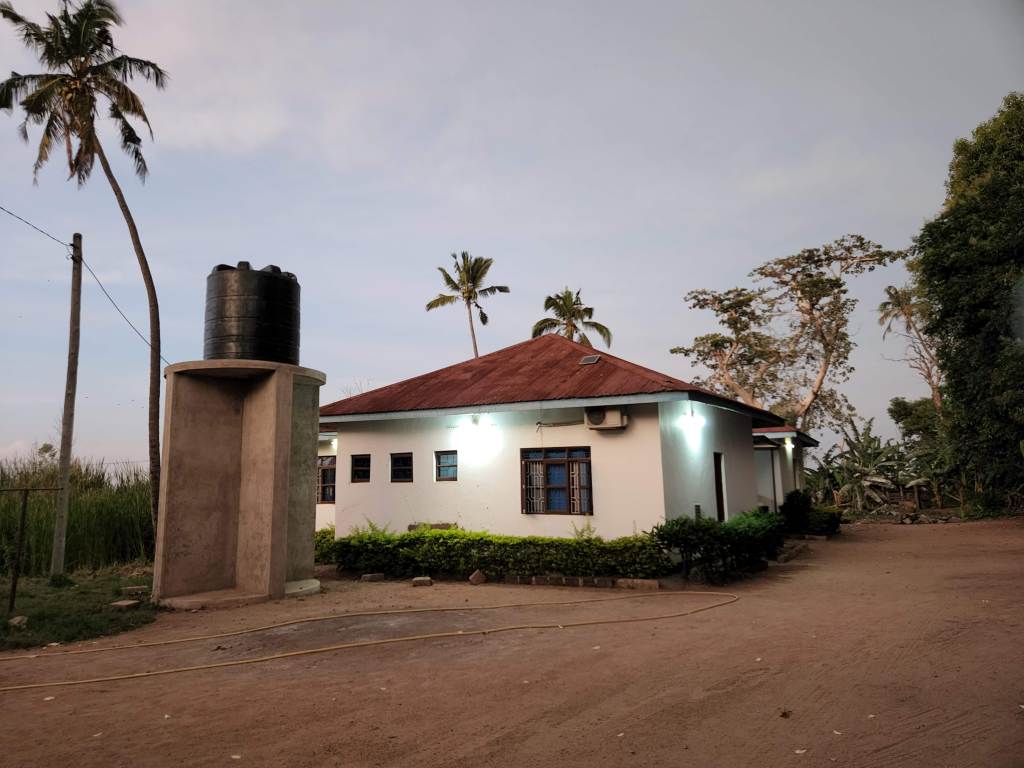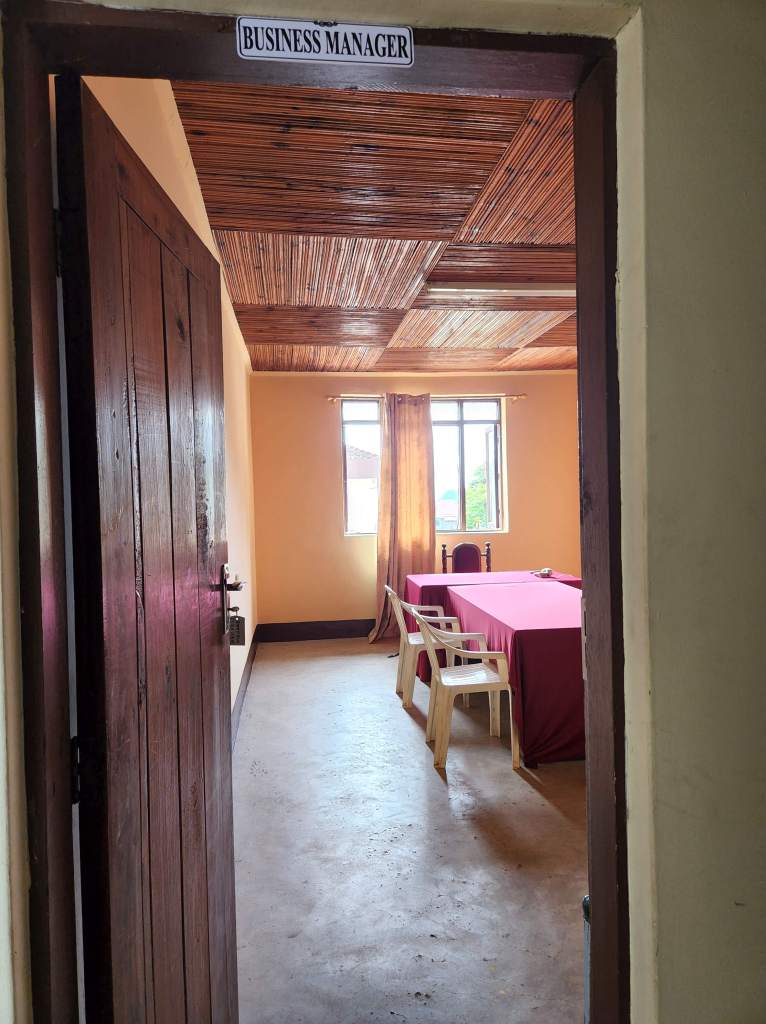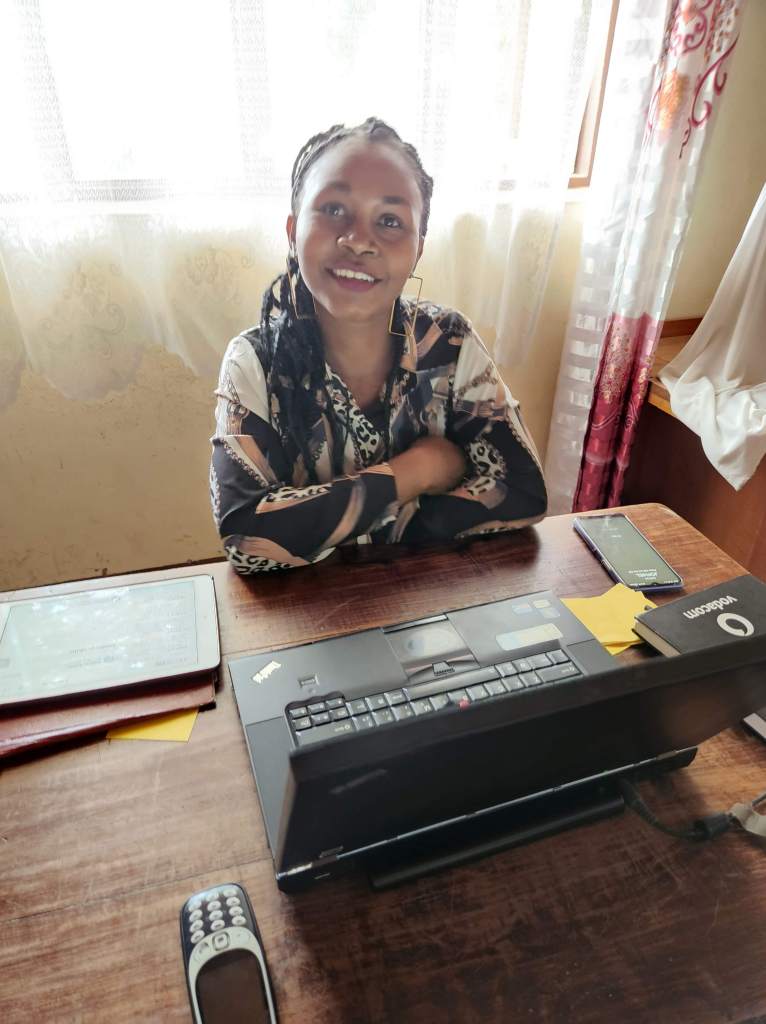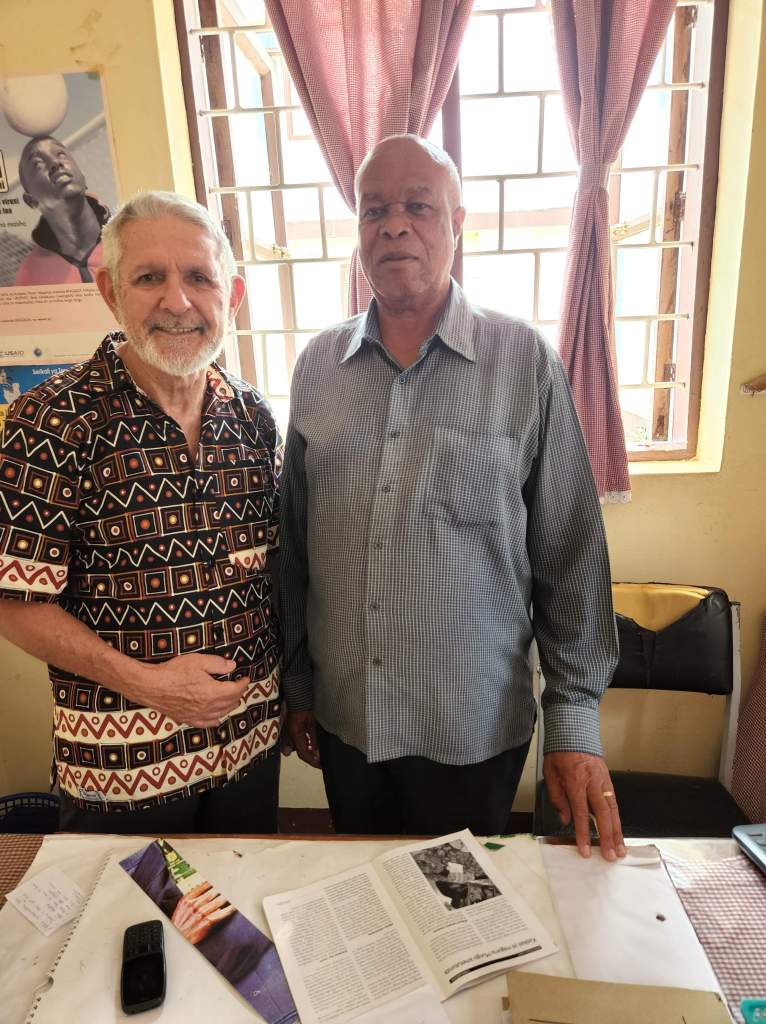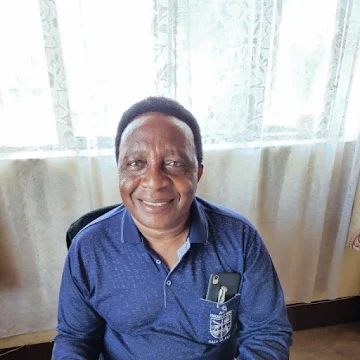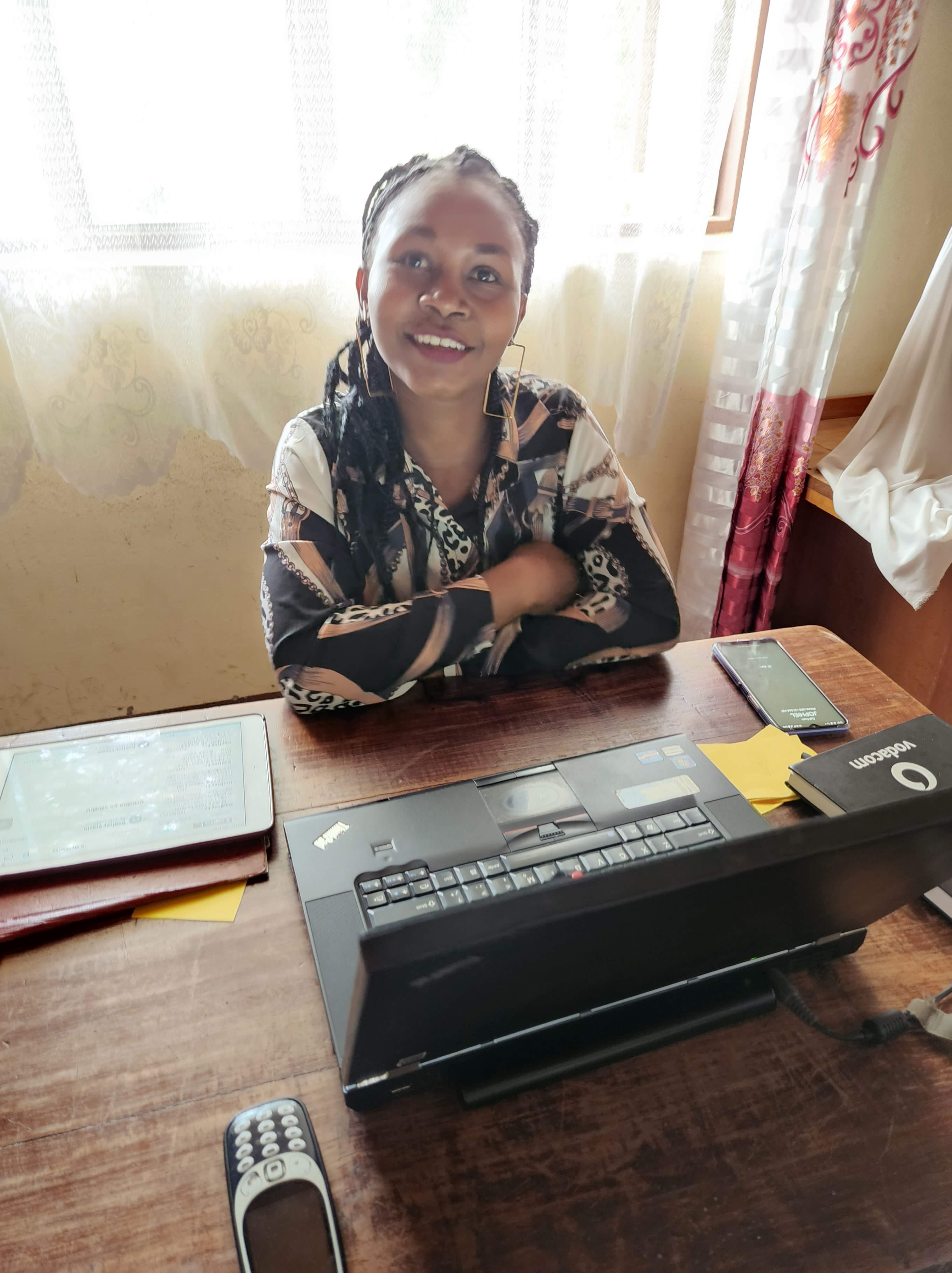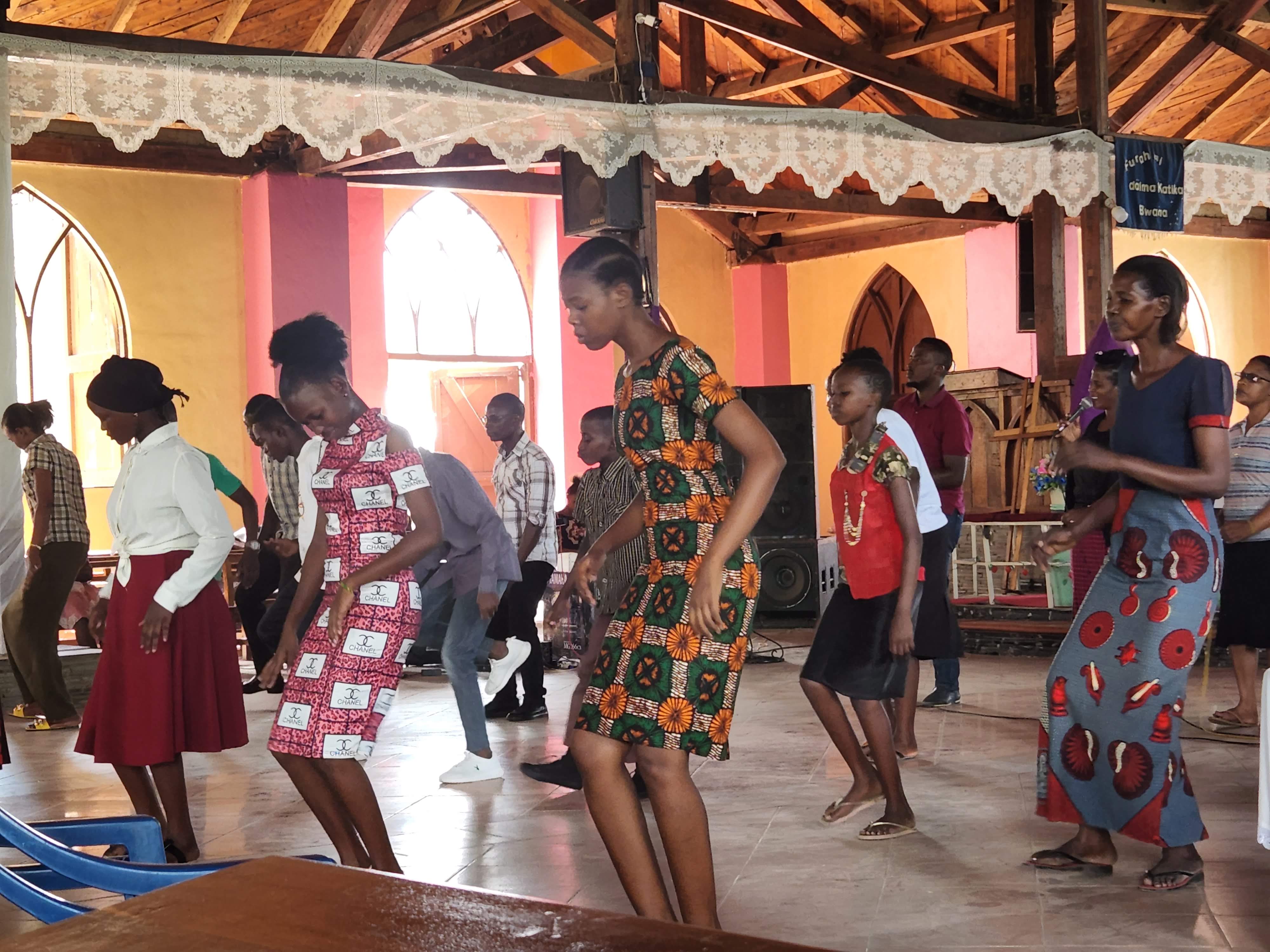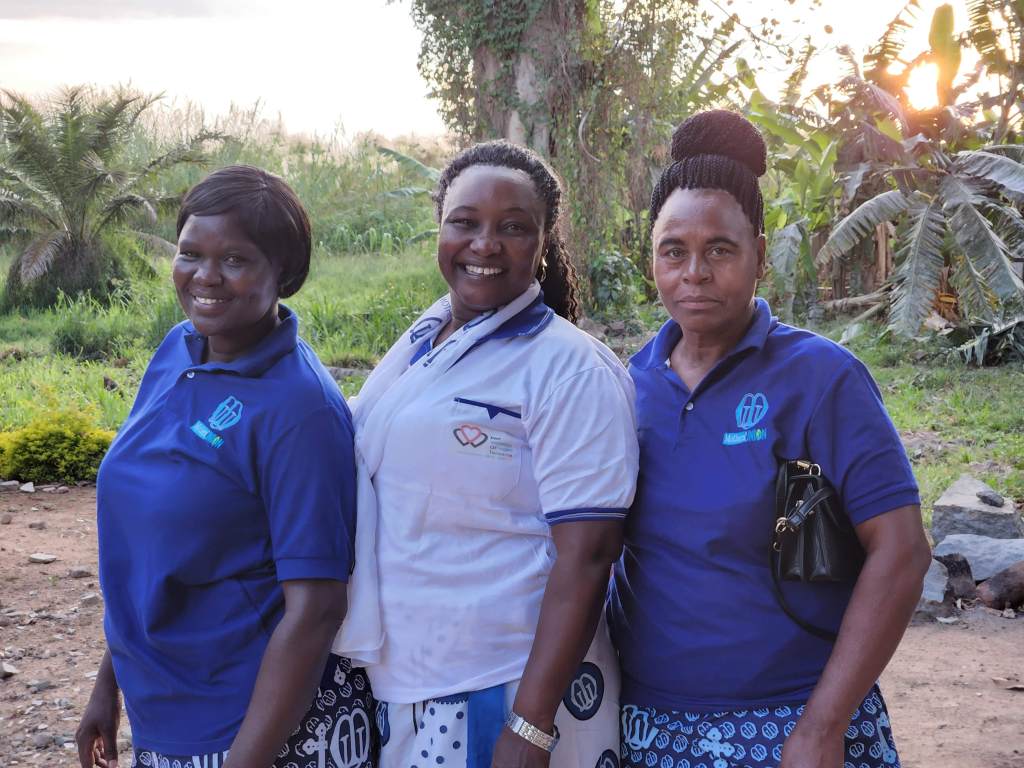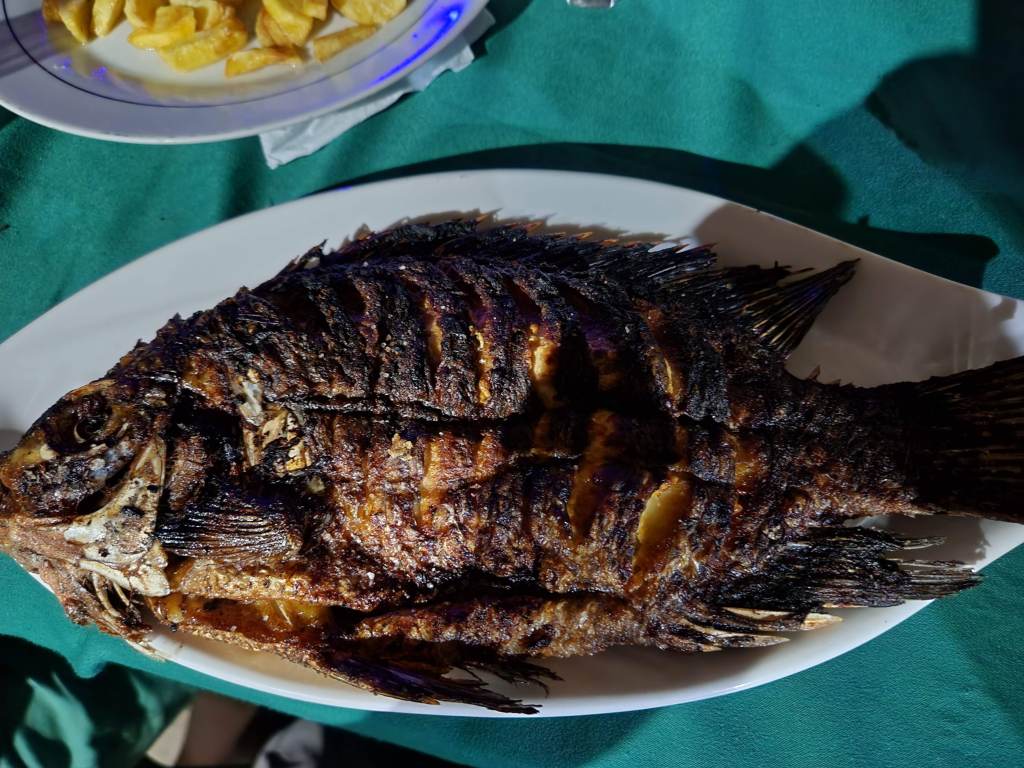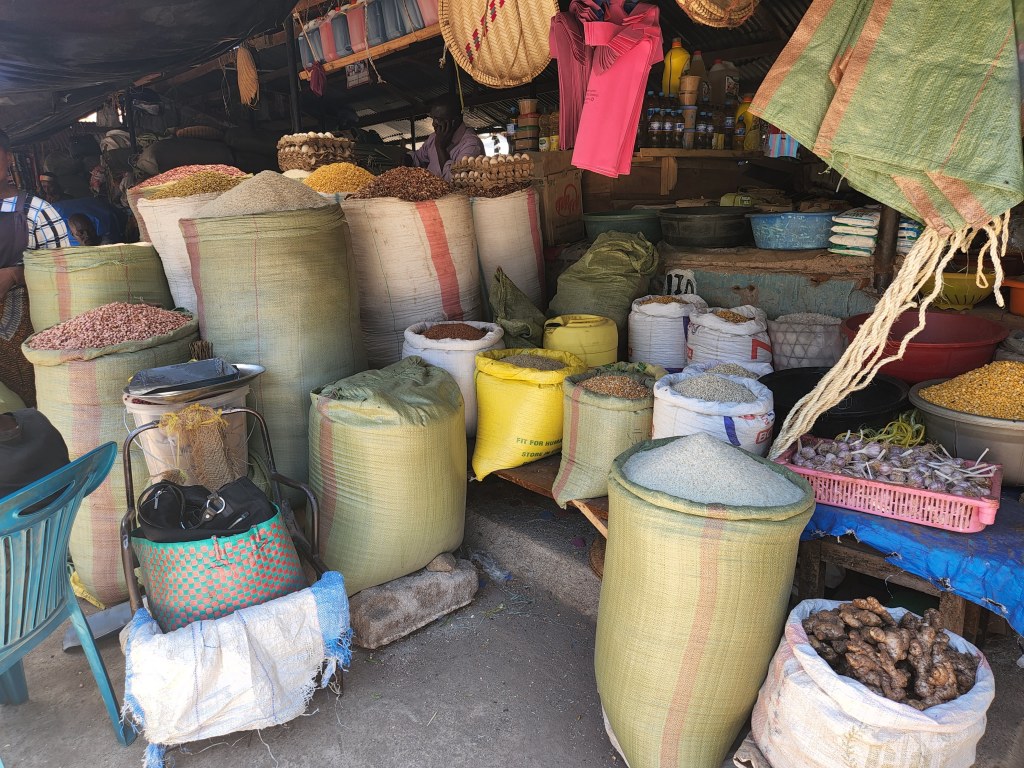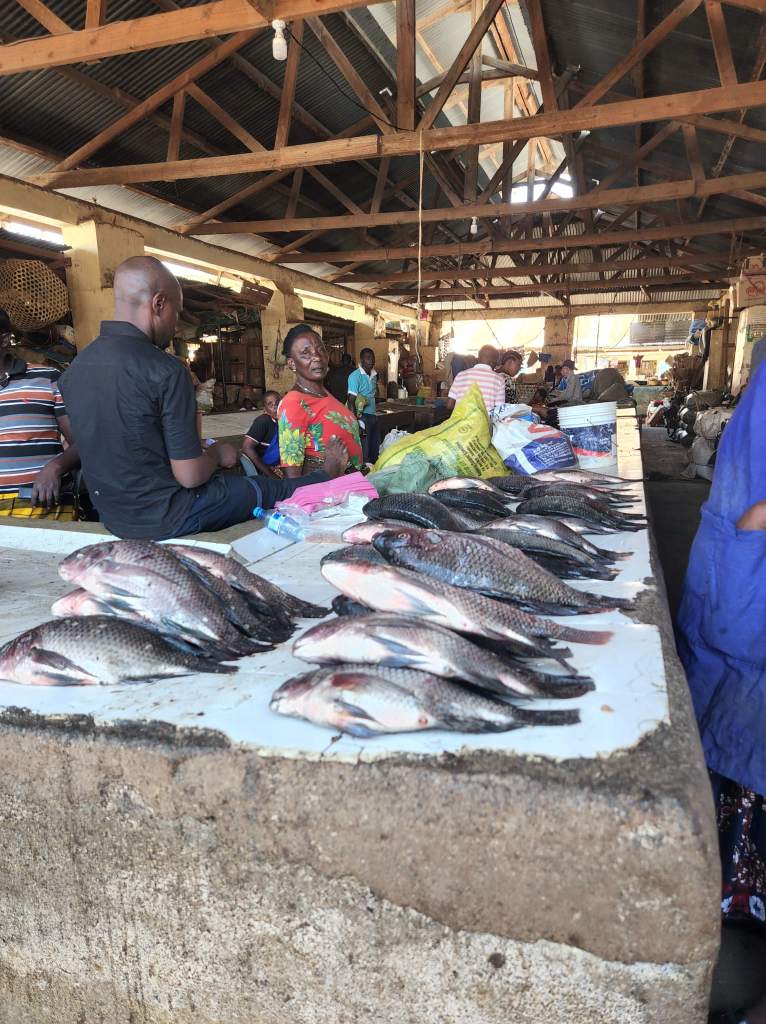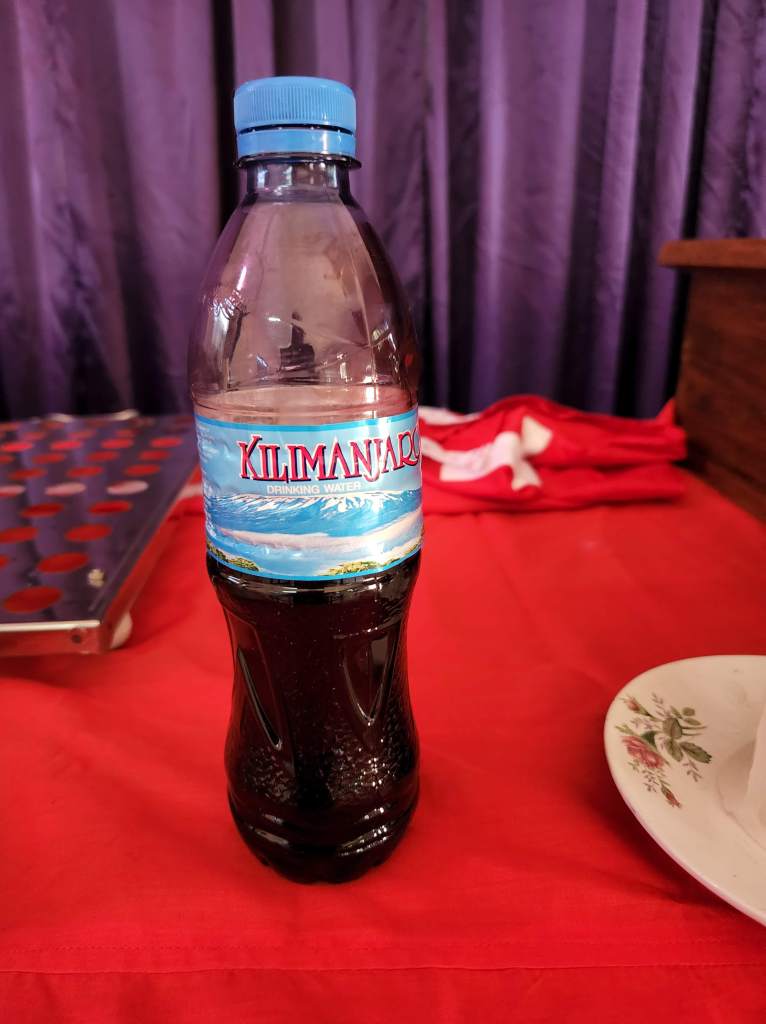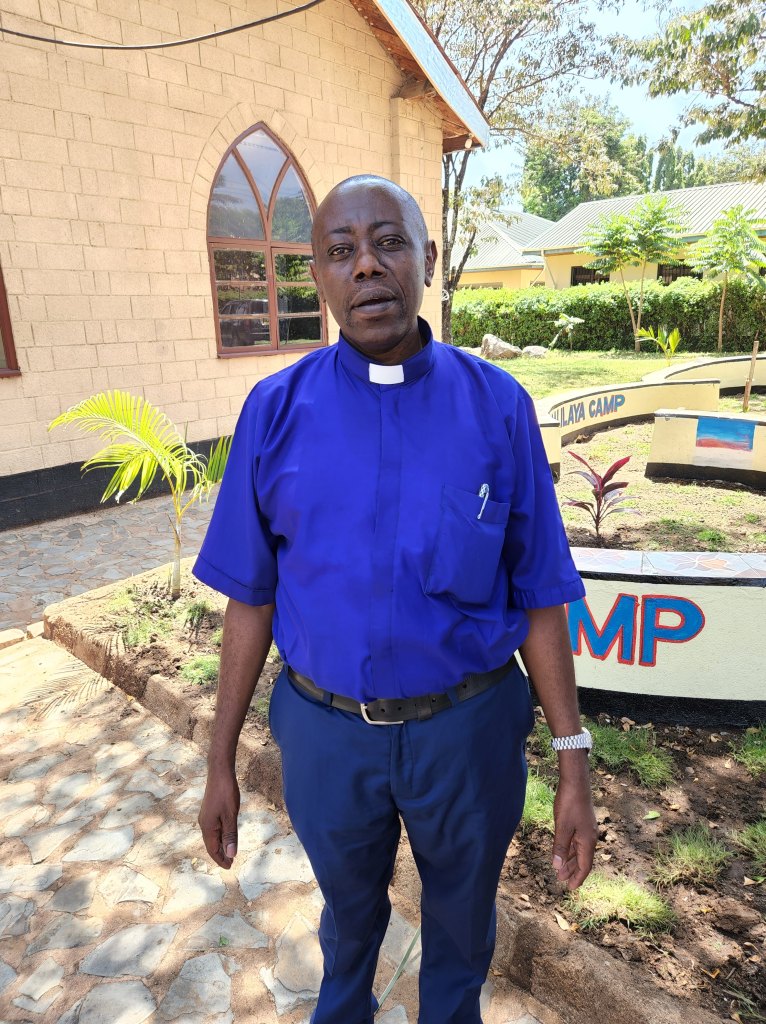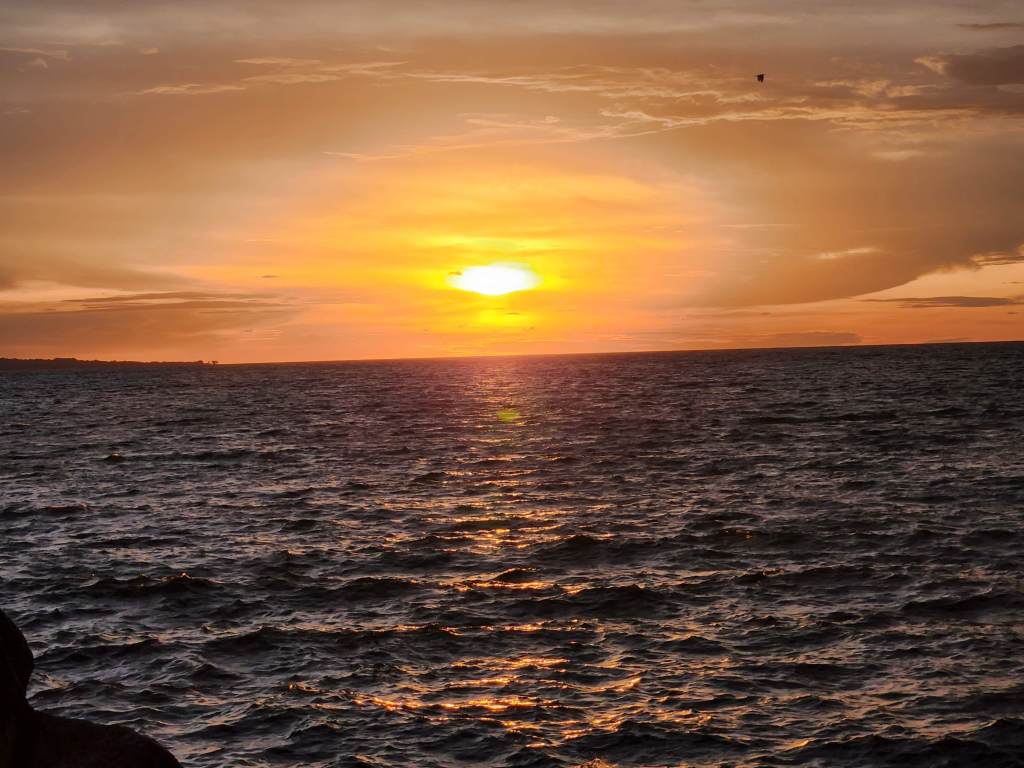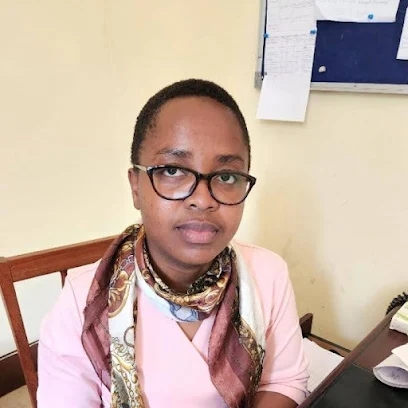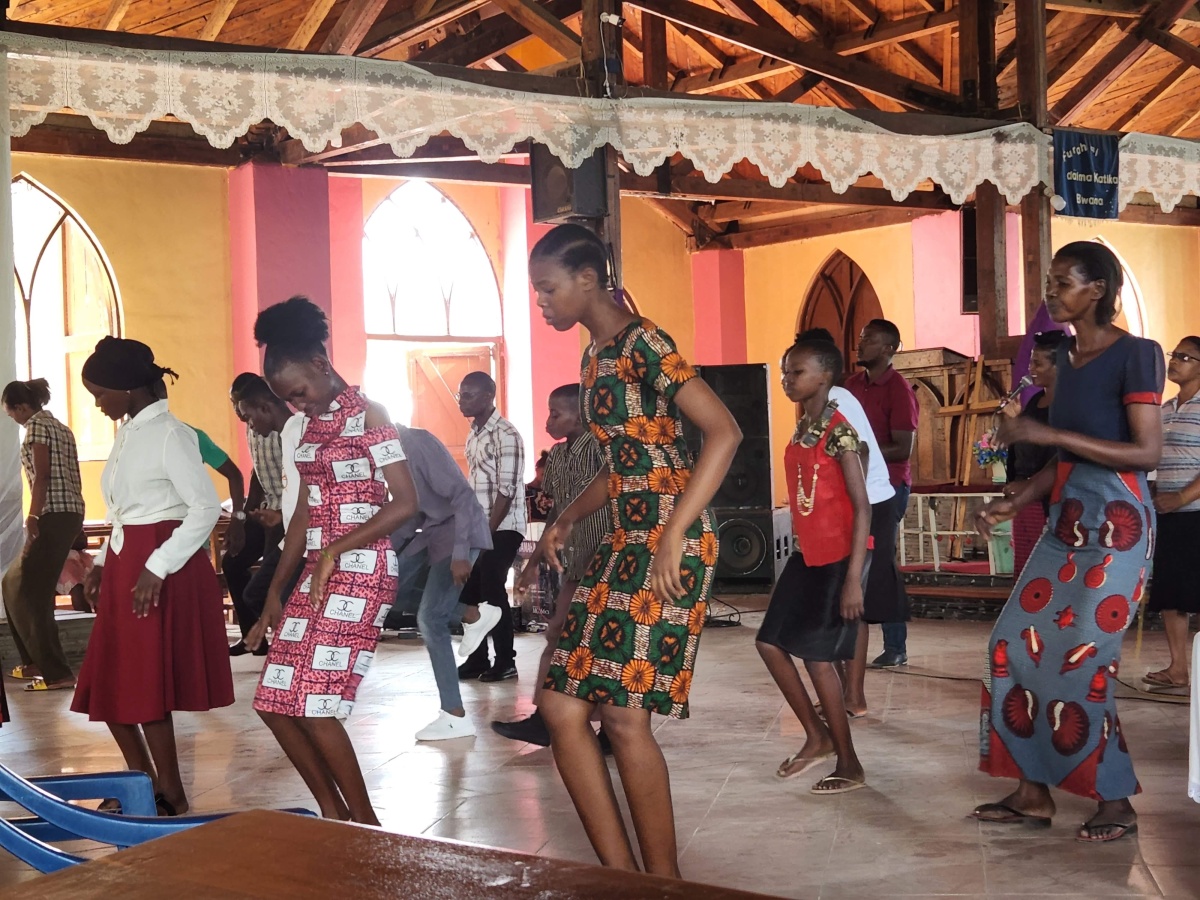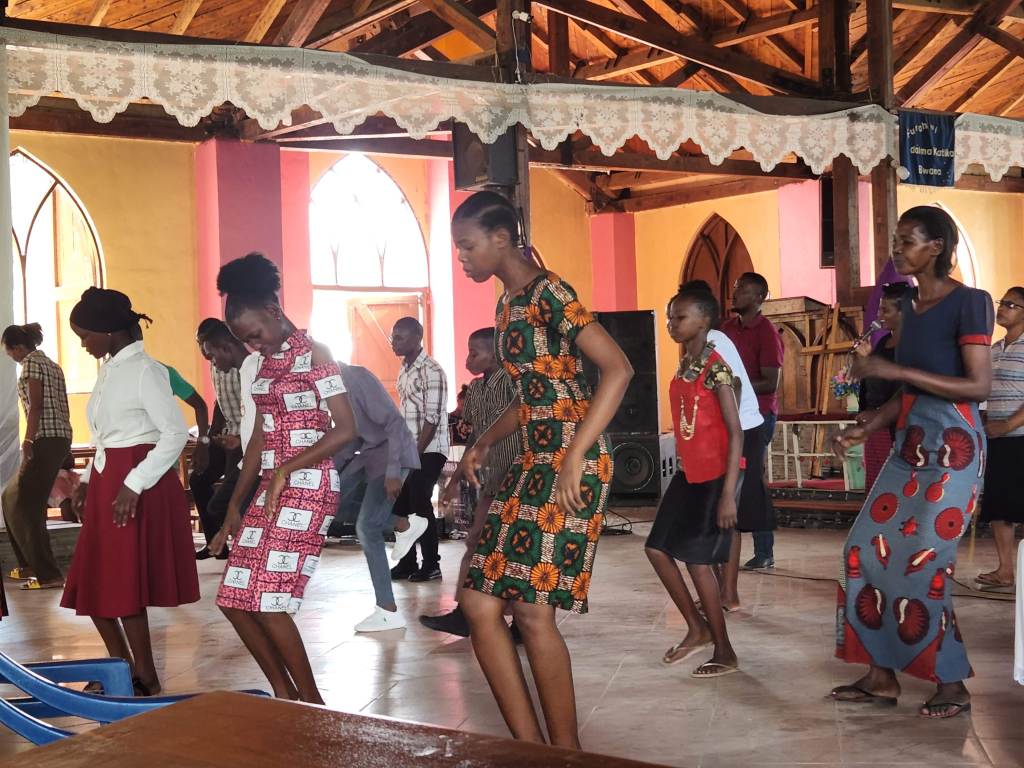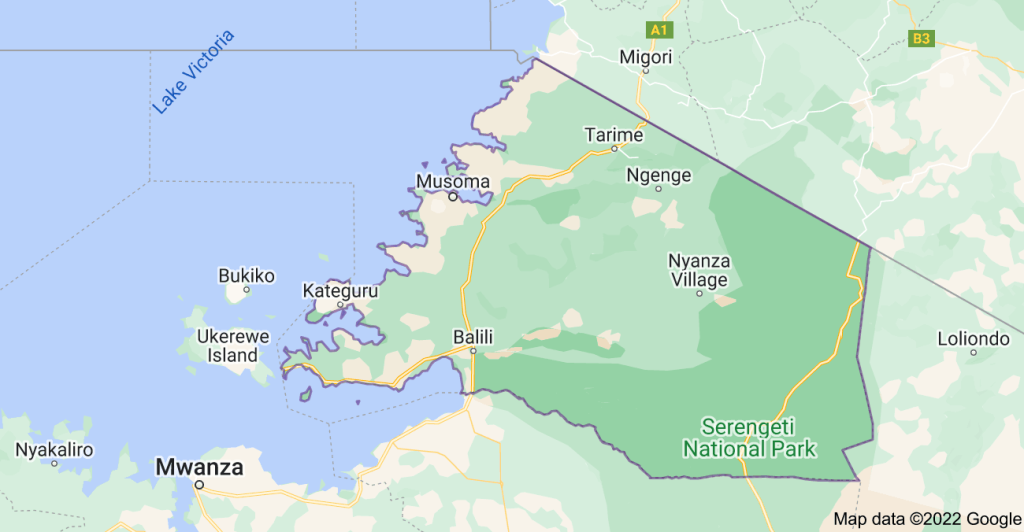An update on week 2 in Tanzania
Easter Monday being a public holiday saw the bishop and I returning from his village where we had spent the previus evening. A separate blog is coming.
Tuesday at the office was spent still getting my head around everything. My meeting with Arthur on Thursday had left me thinking about a young woman who he had lined up for studying at the local sewing centre here in Musoma run by Mother’s Union. Anglican Aid had previously supported the renovations at their hostel and provided equipment including machines for the classes. I had on an earlier visit proposed they relocate from the small room they were in to a vacant room elsewhere to accommodate all the girls This actually happened in front of my eyes on the day. It seems many here are happy to take advice when given for what was obvious to me. It seems a nudge helped them to see that there was a better option.
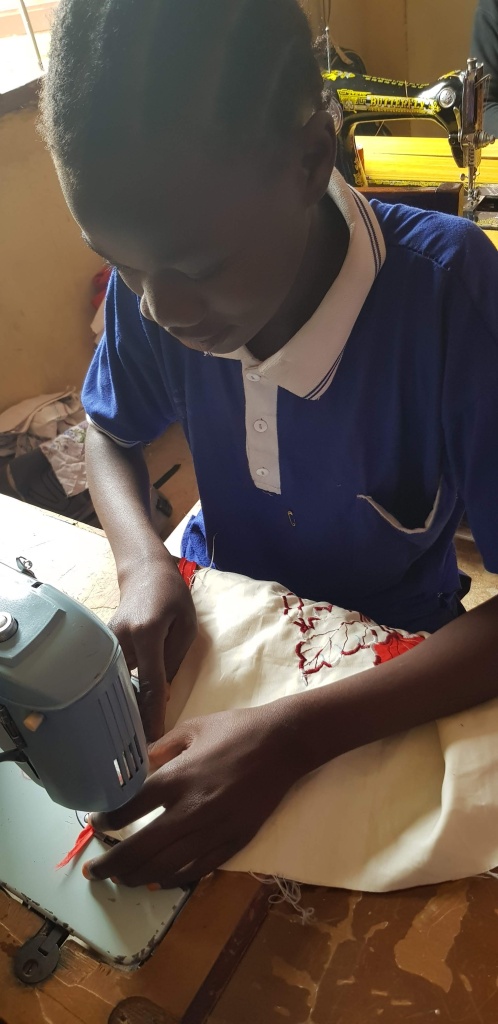
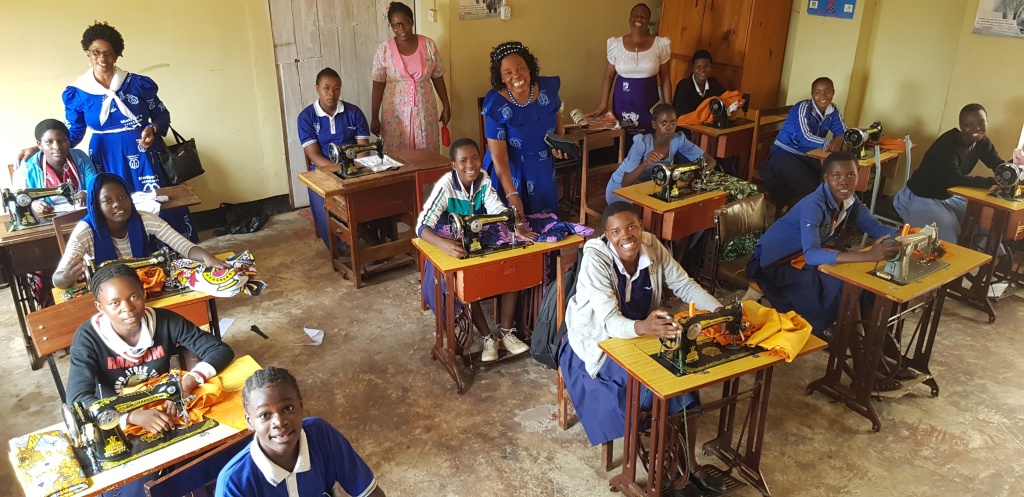
Glen and Dominique and their three kids worked and lived here for over ten years until COVID struck. They packed up and left the country as did most westerners at short notice. They were back to say goodbye to many they worked with over the time here (Glen was principal of the local Anglican Primary School), pack up their remaining goods and give their kids and themselves time to close this part of their lives. A formal farewell was held for them on Wednesday, separate from the farewell the previous week by the school staff.
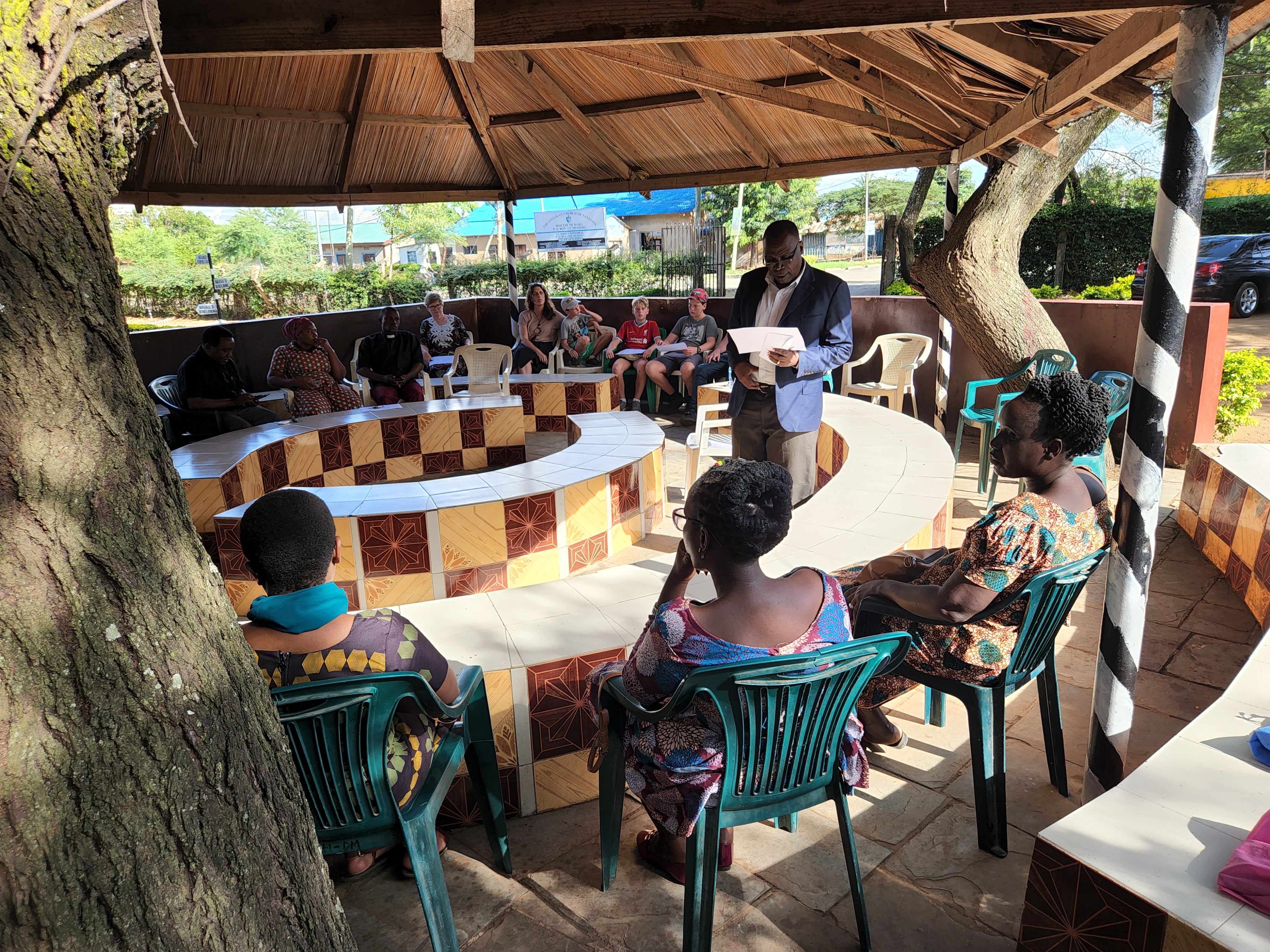
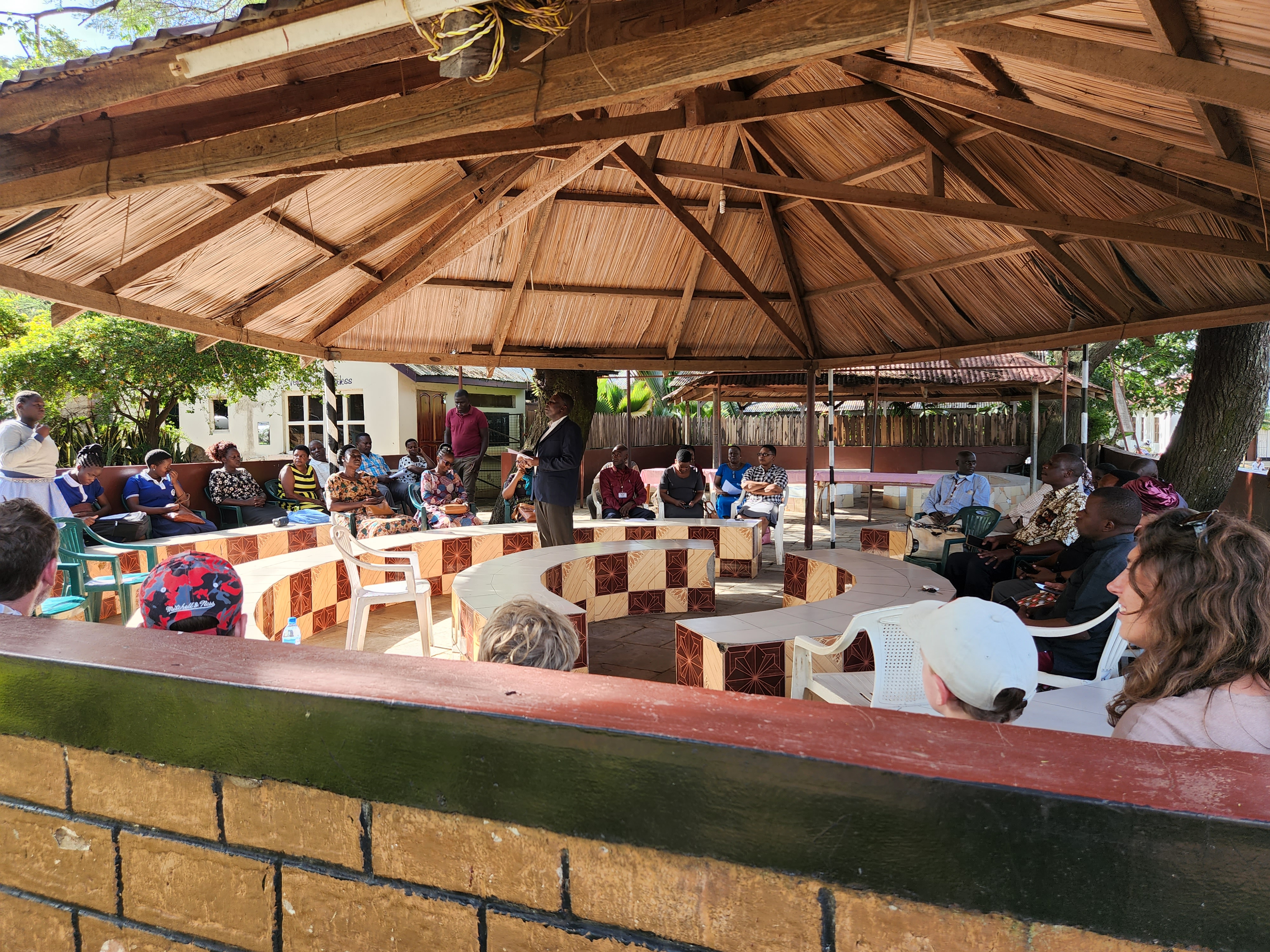
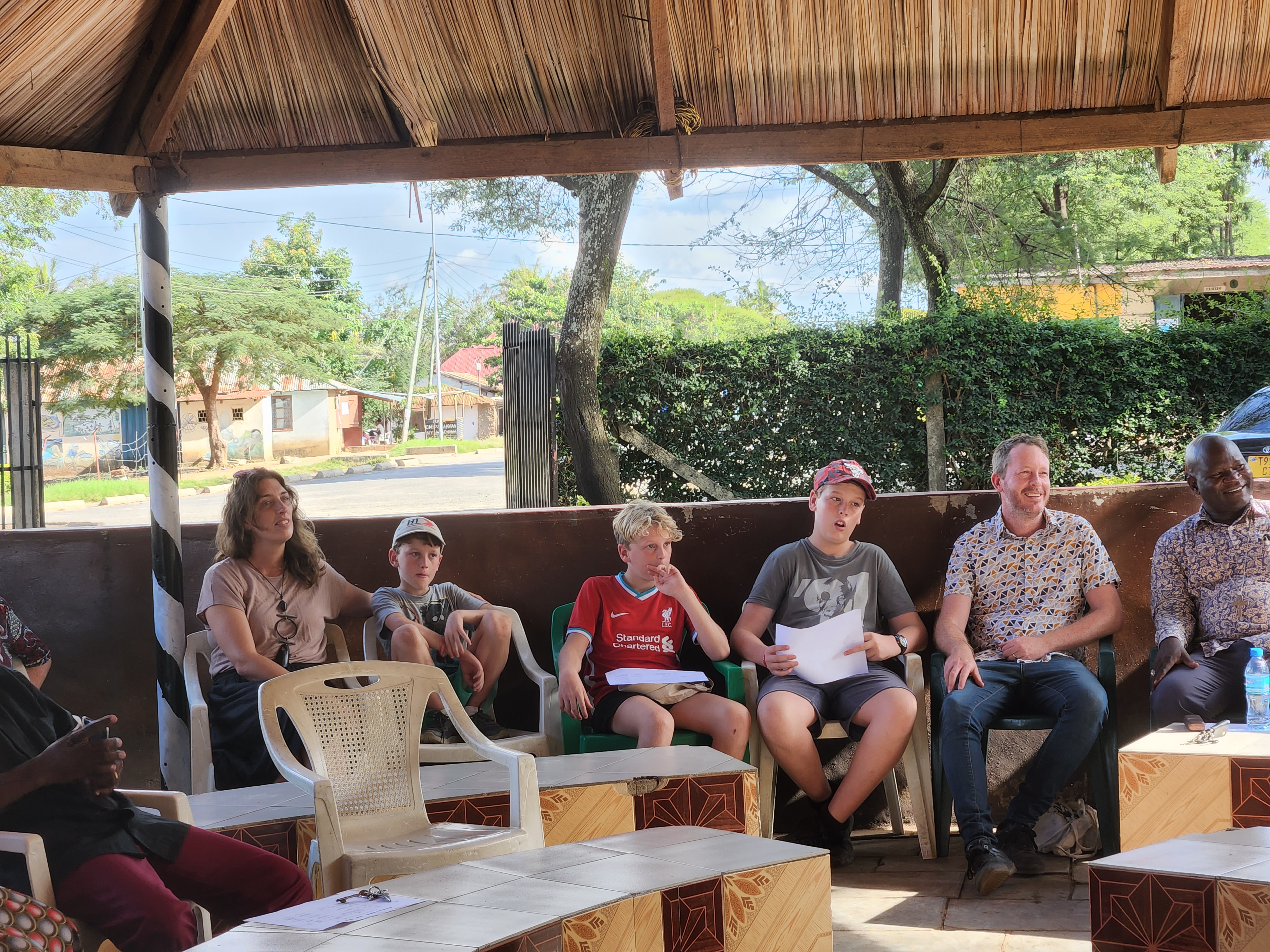
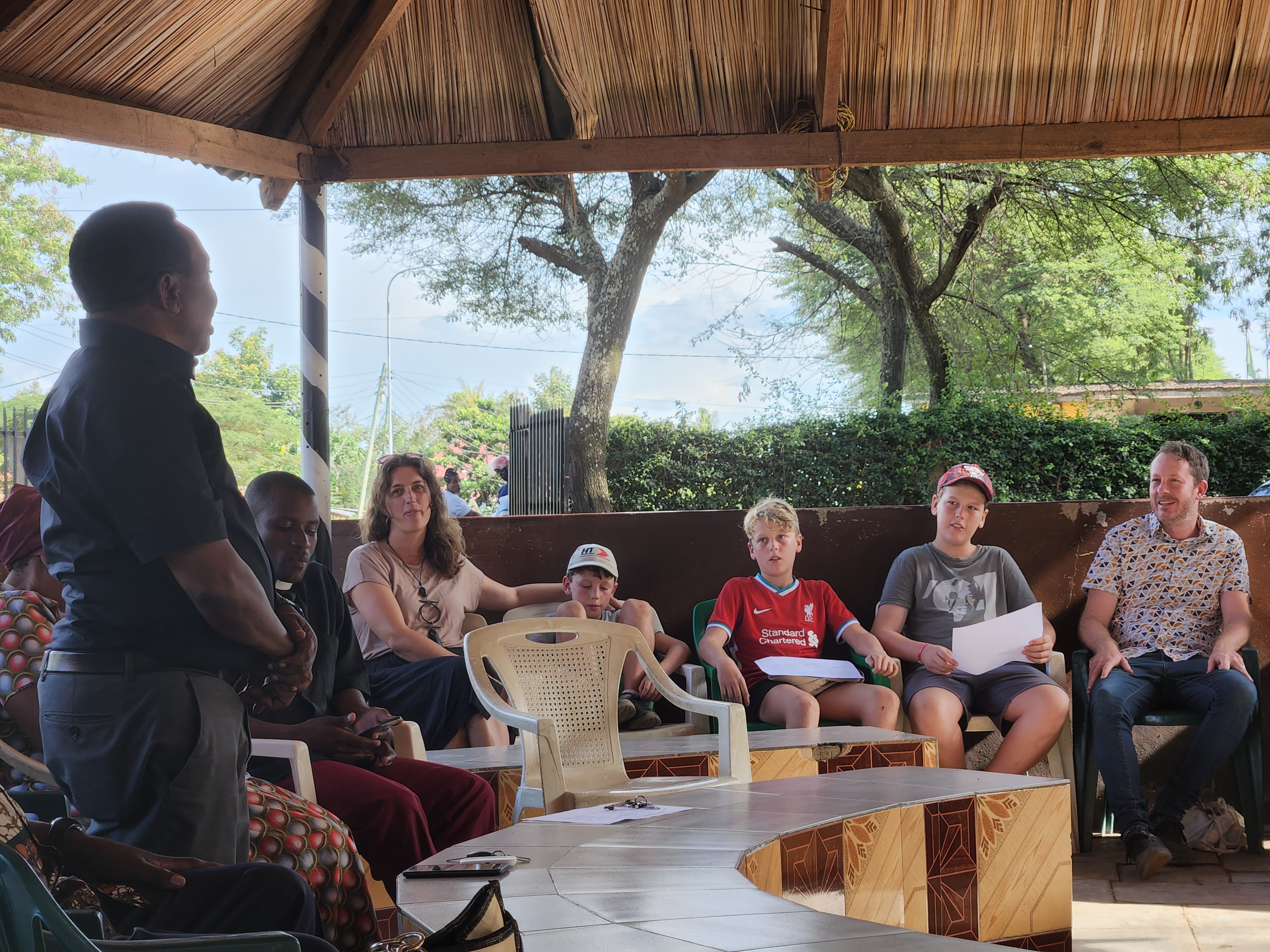
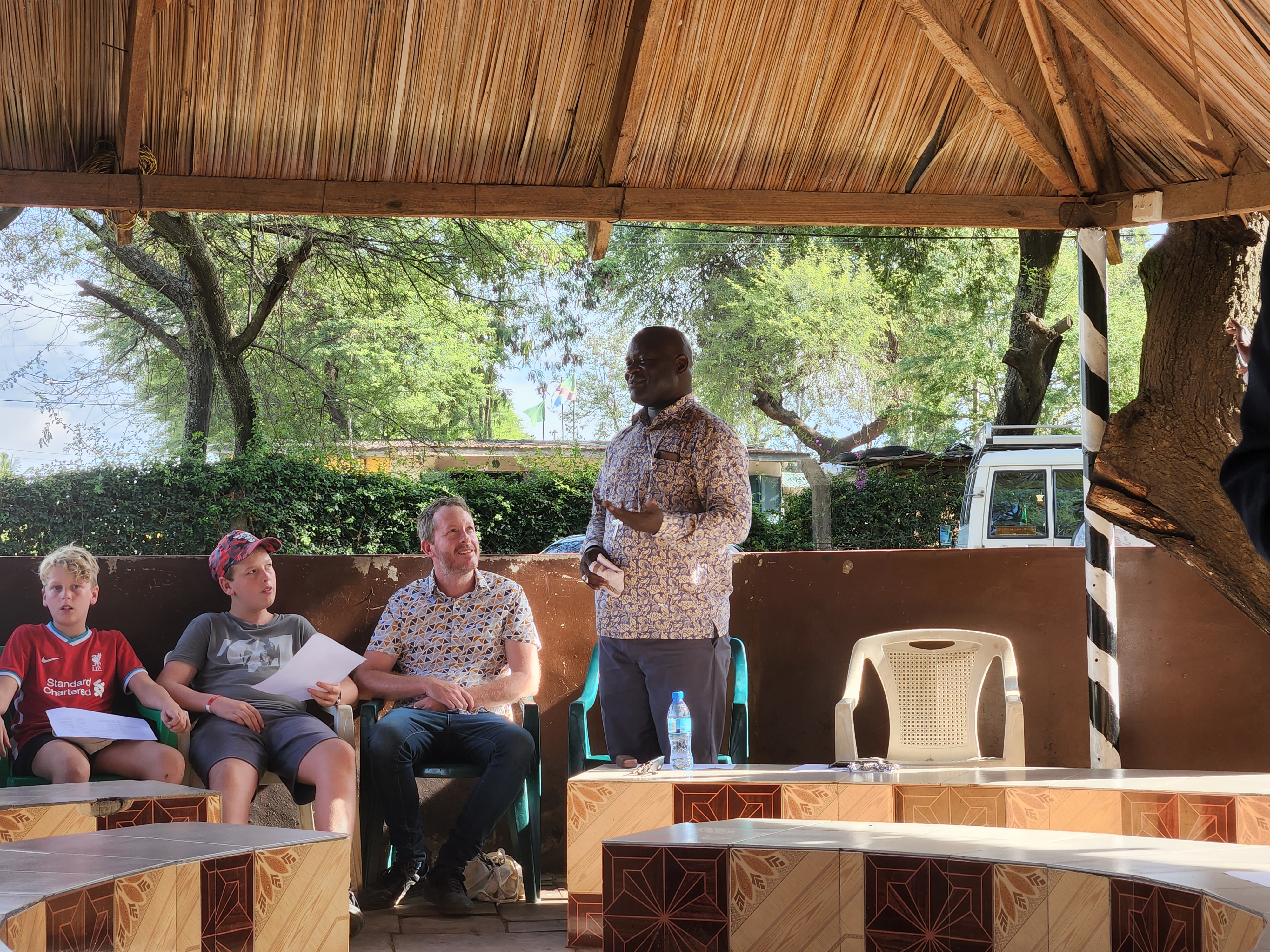
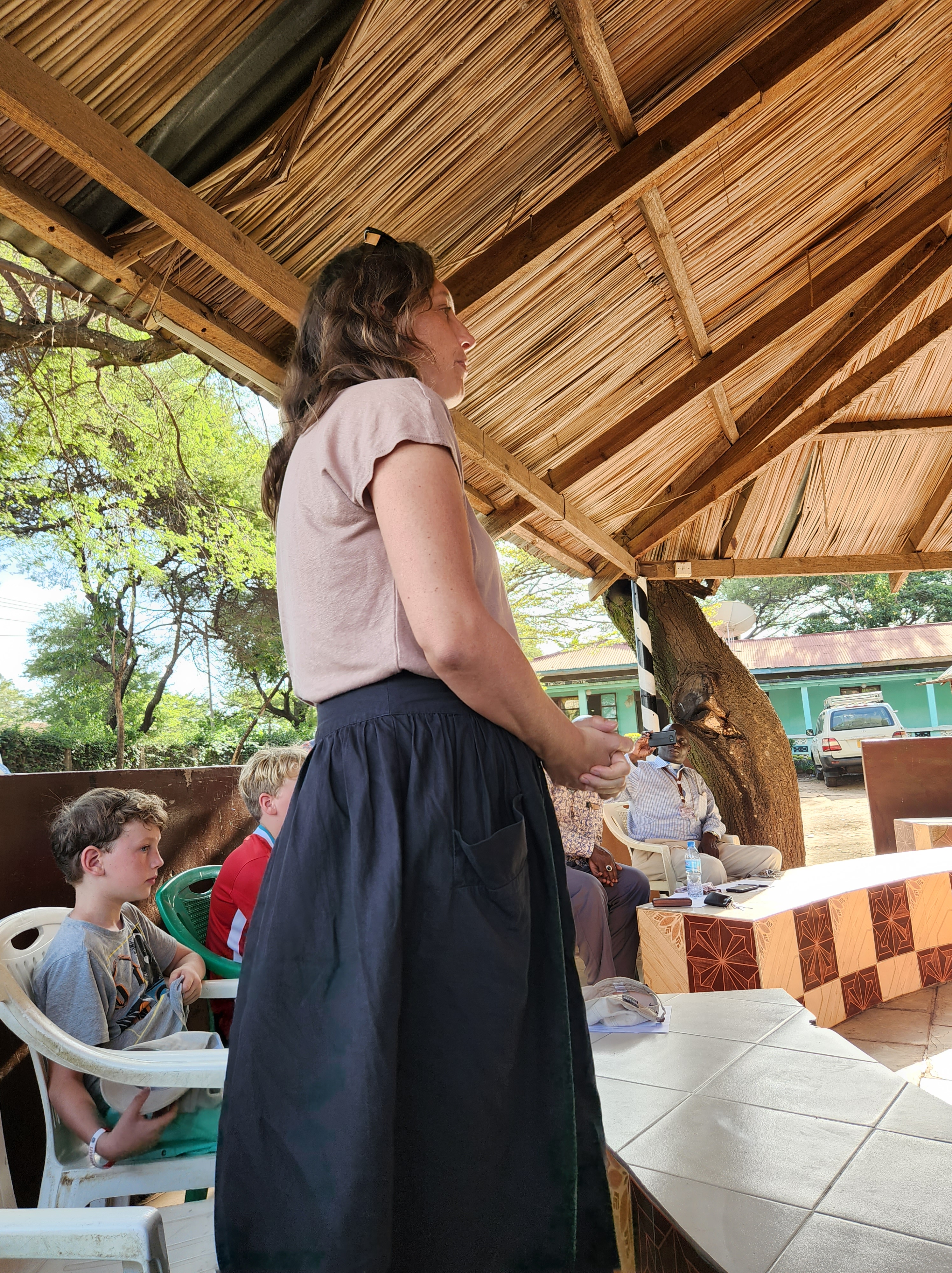
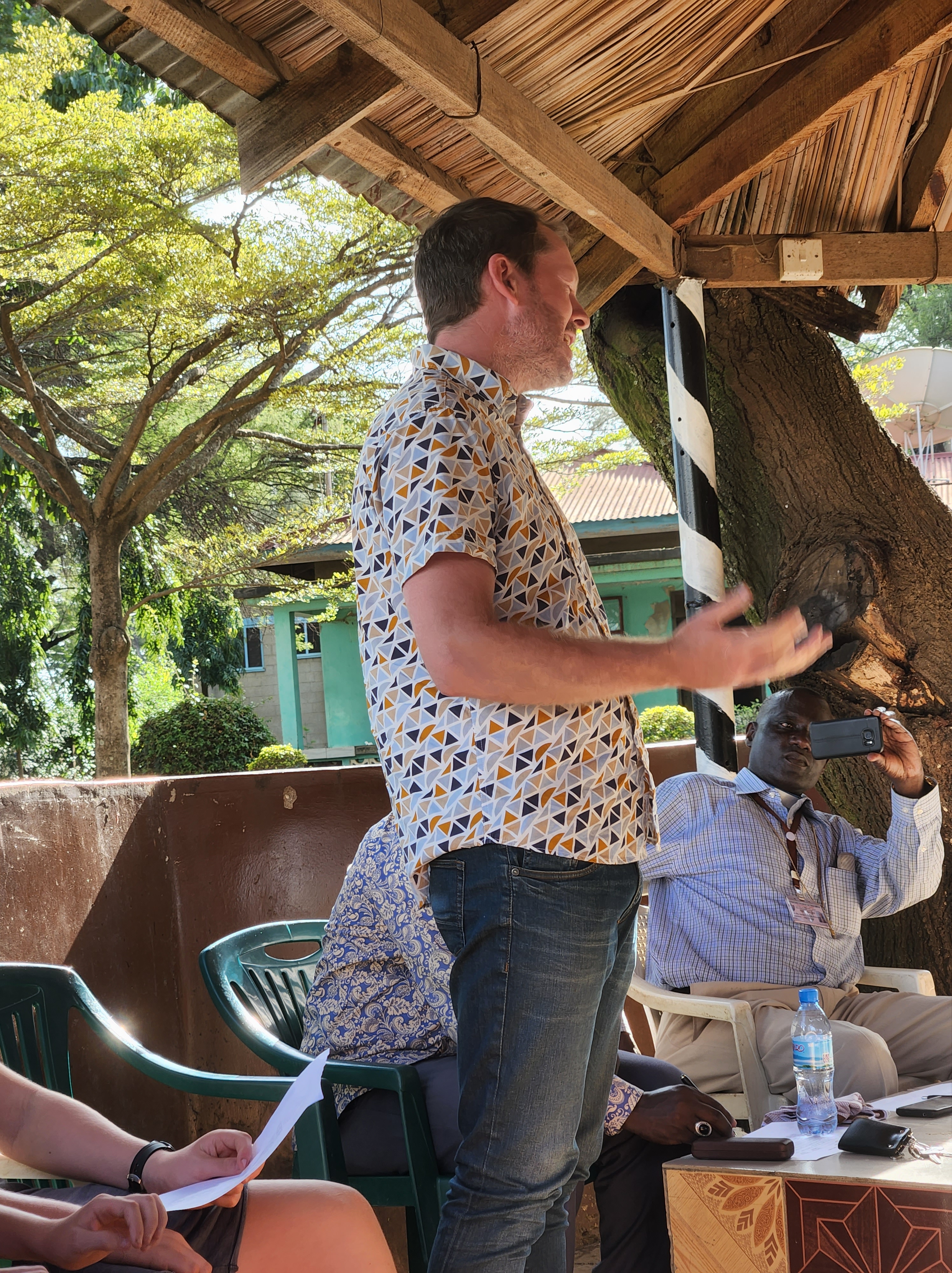
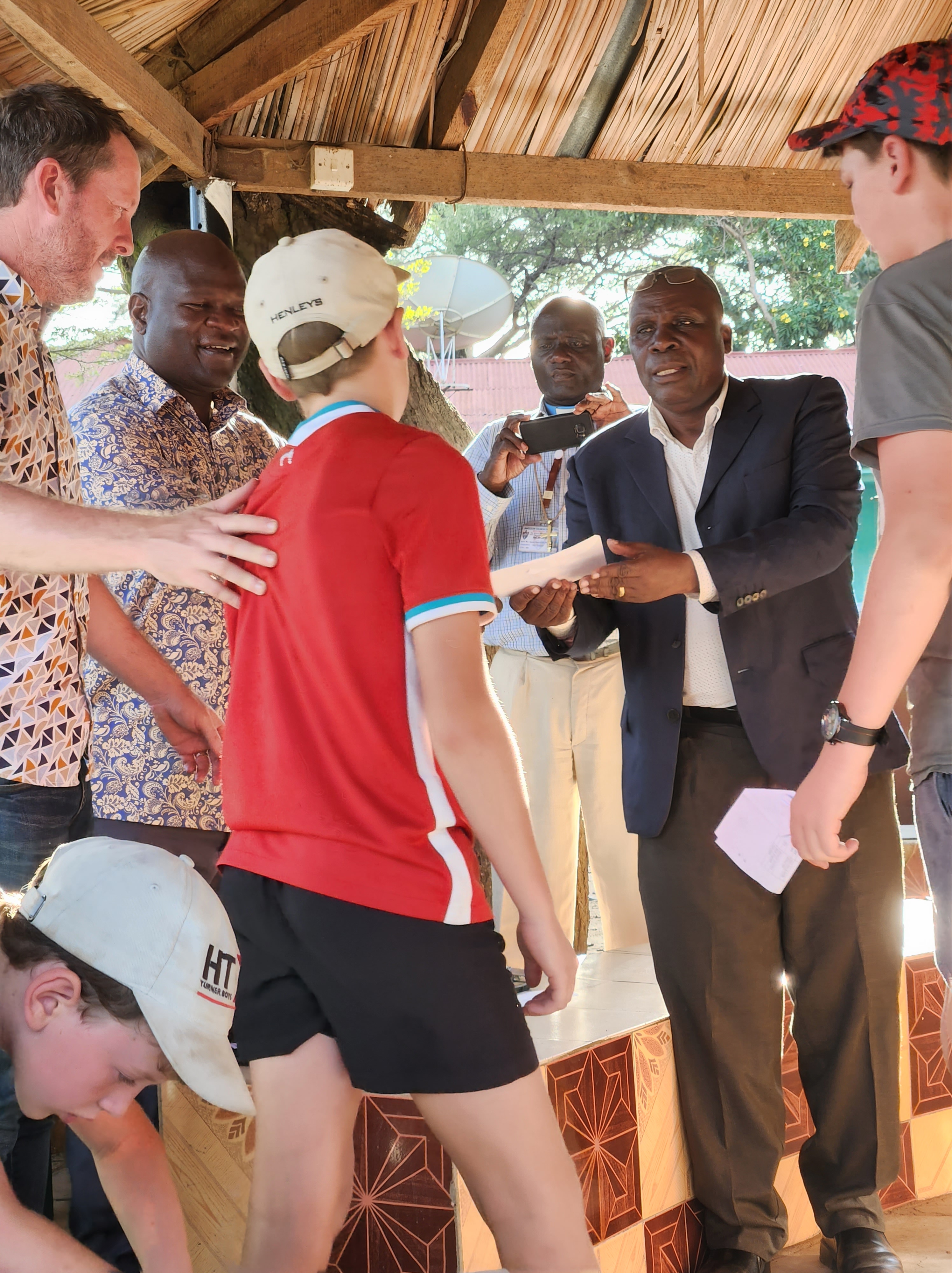
The farewell was held in a covered area near the hostel and kitchen which is where many meetings are held in this climate. There were a number of speakers before the bishop spoke in glowing terms of the service the family had renderd to the church and how Glen hasd raised the standards at the primary school where he was principal. He brought professionalism and diligence and modelled leadership that teaching staff had rarely seen. Glen was quite emotional in his response. Big thing saying farewell to a part of your life you have invested in for so many years. CMS, his sending agency are to be commended for faciliatting this return visit.
Compassion International is big in Tanzania. I have been to countless churches and heard the staggering numbers of kids supported by them. In most churches Compassion is the biggest program operating. In Musoma there are about nine Compassion Programs, each operating with over 200 kids, a manager, social worker and accountant. That’s over 2,000 kids in this town/city alone. This week they were running a conference for the Lake region here in Musoma so the bishop was attending that Wednesday and Thursday. So dinner was at the conference centre down the road from where he lives. We had dinner with the two bishops from nearby dioceses and it was also an opportunity to meet staff from other churches in this region.
Dinner with Mwita and Musa was great. I know both of them from my time at Anglican Aid and both are fine men. We chatted over old times and I learned a lot about the Anglican Church in Tanzania as Mwita was Provincial Secretary prior to becoming a bishop. It was a late night, lakeside in a beautiful location. The resort is basic and needs funds spent on it but cheap. Food here is excellent.
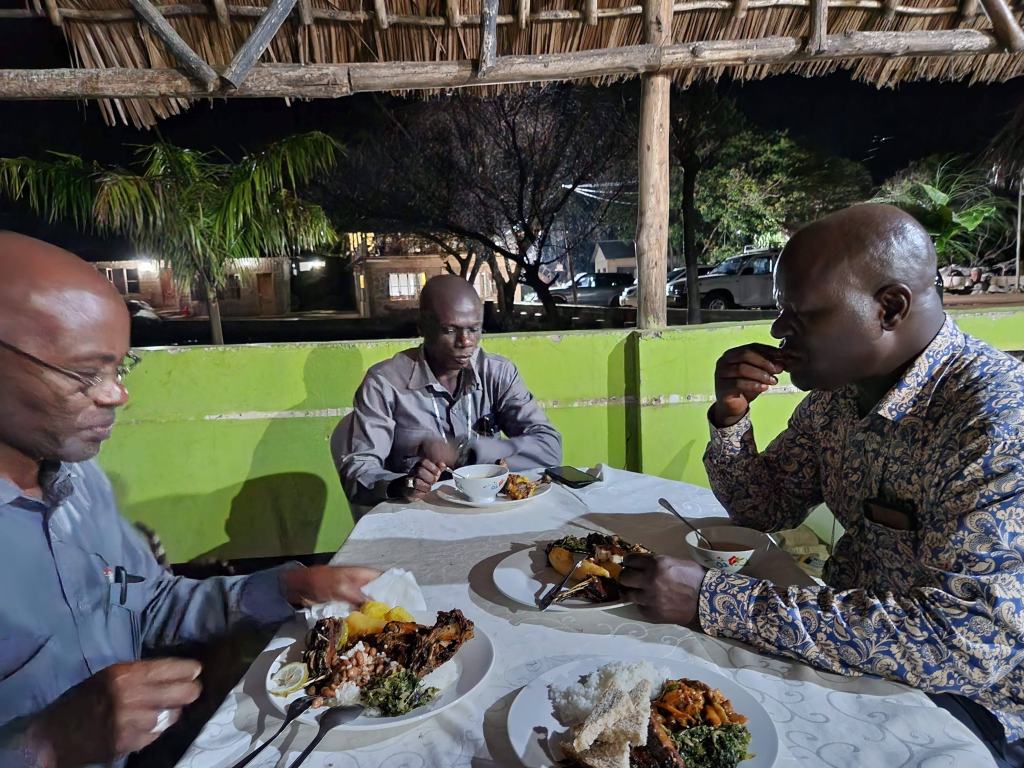
Grace didn’t make it t the Compassion program as a child. She is a young woman whose education was disrupted by her father’s death. Arthur had told me the previous week about how the tailoring centre here and Bunda changed lives dramatically of girls unable to continue to secondary education because they did not pass the national exams or due to family finances. He gave examples of how parents prefer their daughters to attend the church program as opposed to the government vocational centres where girls from villages fend for themselves in towns and cities. The Mothers’ Union here provides a hostel with a matron so village girls are not without support.
Grace was due to start at the sewing centre in February, one of four scholarship recipients but was responsible for providing a uniform and some other basic things like mosquito nets and food. Up to the last days her family was not even able to raise $12 to contribute so did not start. After pondering this over Easter I told Arthur I would cover her costs for the scholarship. He was taken back as he only mentioned her as an example of girls whose lives have little future if they cannot get some sort of training.
Next day Arthur walked in to my office with Grace. He and some of his staff decided to support the additional money she needed for the add ons and her mother agreed to provide food monthly (girls cook for themselves to keep costs down). Grace’s appearance tells you all you need to know about village life. At 25 years old she looks much younger than her years. She is undernourished. She left school in form 1 aged 18 years old after her father died (that sentence tells you a lot about educational opportunities in Tanzania). While education is “free” the additional costs result in many not continuing as students must supply uniforms, books and materials. On Easter Sunday I met a primary school teacher who has a 173 kids in her class – and she was smiling! Two friends of Grace from nearby villages were in the office with her having collected her from the bus station. They have had two months in town and will help her settle in.
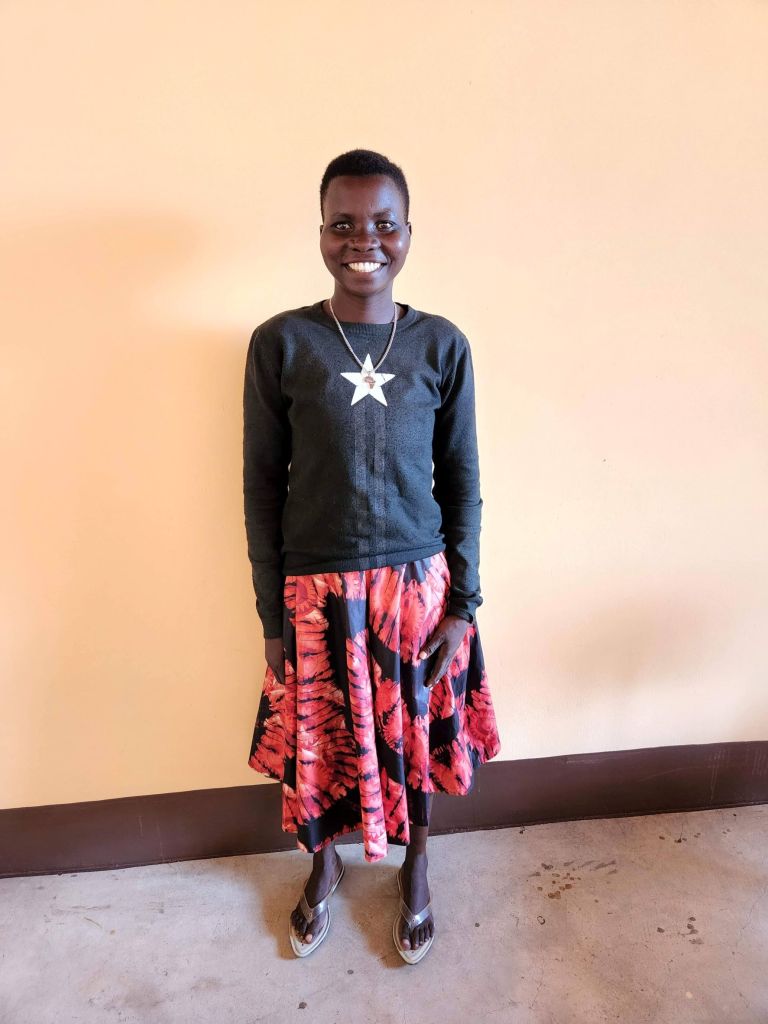
Martha is the secretary of Mothers’ Union in Mara, having taken over after the untimely death last year of Dorothy apparently due to diabetes. She is an ordained minister who serves at the cathedral on Sundays. I was able to give her my old laptop (2017) which I replaced last year for MU use. As I spoke to her and Arthur apologising for its age, Arthur told me this was the most modern laptop in the diocese. When I saw his I realised what he meant, still running windows 7 on a 4kg laptop which looks about 10-12 years old. Martha is new to computing so will as Arthur suggested enrol for an hour a day in the basic computer class next door at the vocational training centre.
Friday was a meeting with the manager of Buhemba Rural Agricultural Centre (BRAC). BRAC is owned by the diocese and comprises 1,000 acres of land which includes a training college on it as a separate entity, providing diplomas in Community Development. It is a huge asset which is not realising its potential. Annarose retired in 2021 as District Commissioner for the area and was offered the role of manager of BRAC. In its heyday in the 1980s it boasted a dairy that provided over 1,000 litres of milk daily and cropped hundreds of acres which provided income to the church. Following the departure of the missionaries who helped establish it, it has failed to maintain the momentum of the early days.
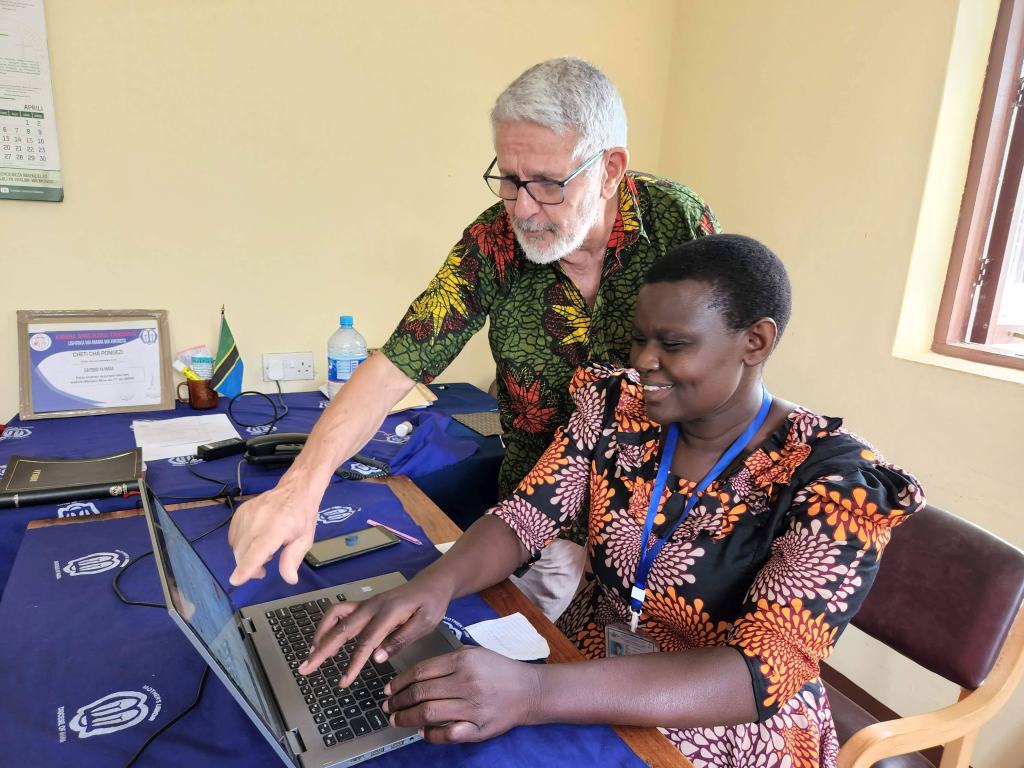
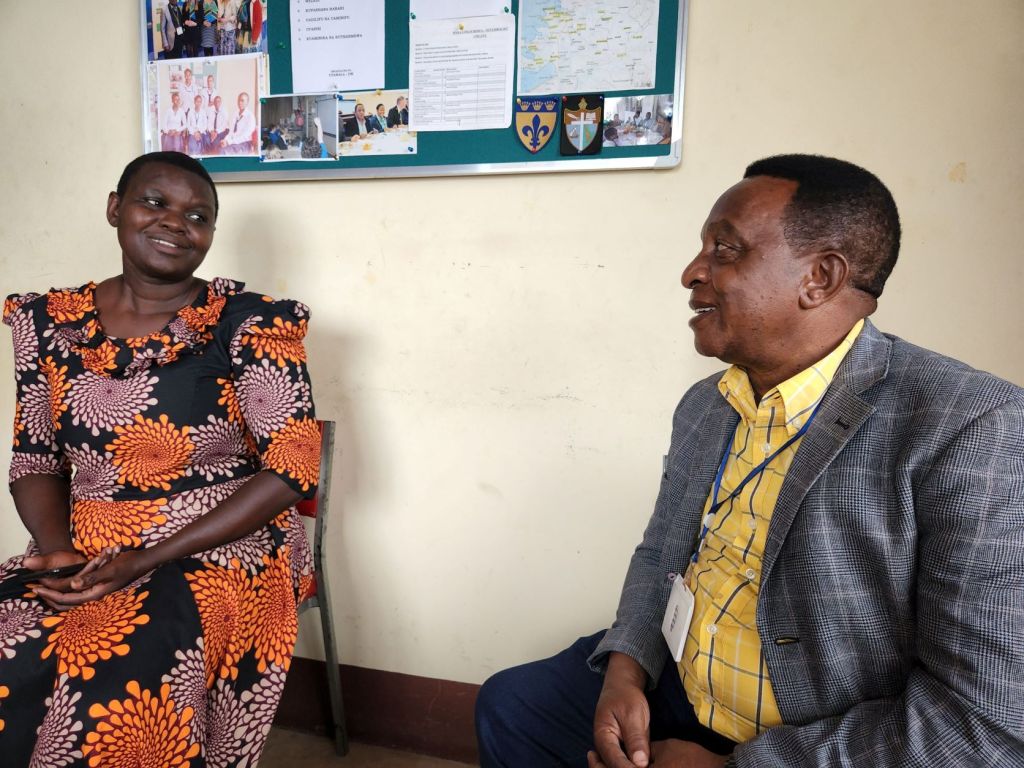
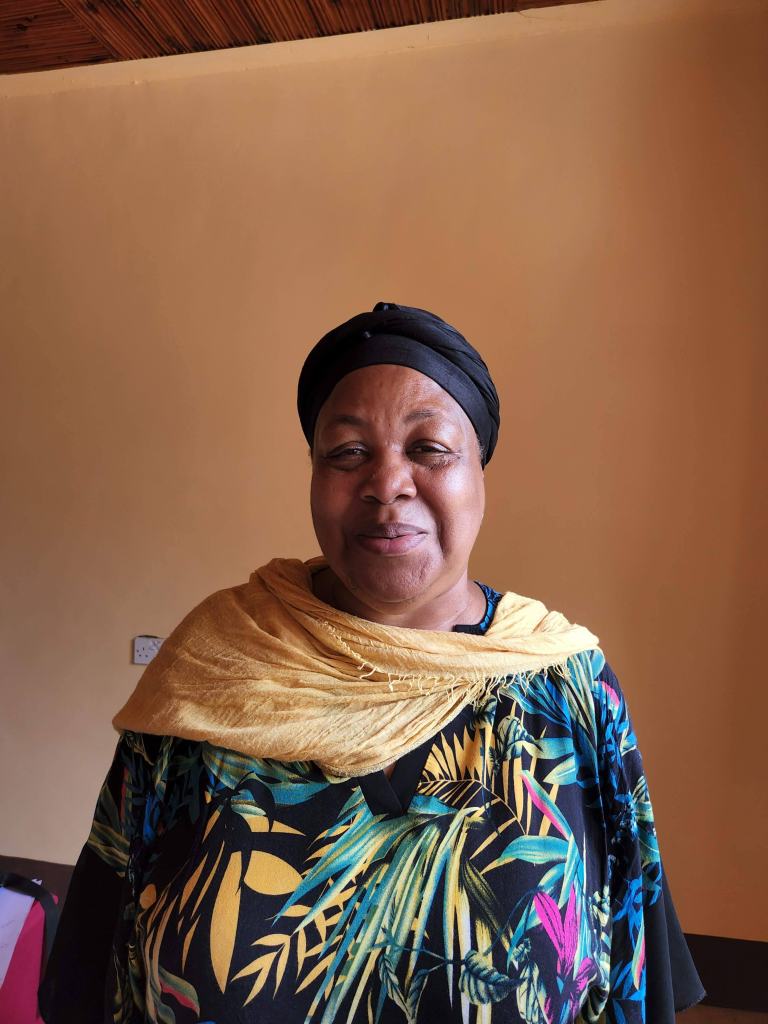
Annarose has a big job and I have been asked to assist her with plans to get this farm functioning and helping her with a strategic plan. It has several business units – cropping beans, sunflower and maize, honey production, sunflower oil, cattle grazing and actually producing sunflower oil for markets. I have previously been to BRAC twice and the potential is hge. It has an underground water tank of 1 million litres and a large reservoir. Both need work to drought proof cropping.
In working through the issues, mortification set in when we spoke about finances and accounting practices and I was told the CPA there is still using books (as in paper) to keep accounts. In discussing this with Arthur who by this time had joined the meeting this is common across the diocese. Another task to look at. Reports are prepared in excel. Any accountants out there reading this who would be interested in a voluntary job?
The weekend came and went quickly. Lunch was planned at Rehema Cafe Saturday where the three English GOMAD volunteers were lunching and a couple, Roman and Rebecca who had been here since 2015 but are now in Rwanda serving with Wycliffe Bible Translators as they cannot get residency permits again. A separate blog at some time about their work which translates oral languages into written form using the Bible as the subject.
The bishop was teaching in the afternoon after morning baptisms at the cathedral so I went shopping to the markets after seeing what the GOMAD people had bought. I came back with Merrell runners for TZS 35,000 ($22) and almost new. The markets get clothes imported from USA, Canada and elsewhere and resell thse. It is huge. The shoes I bought were almost new.
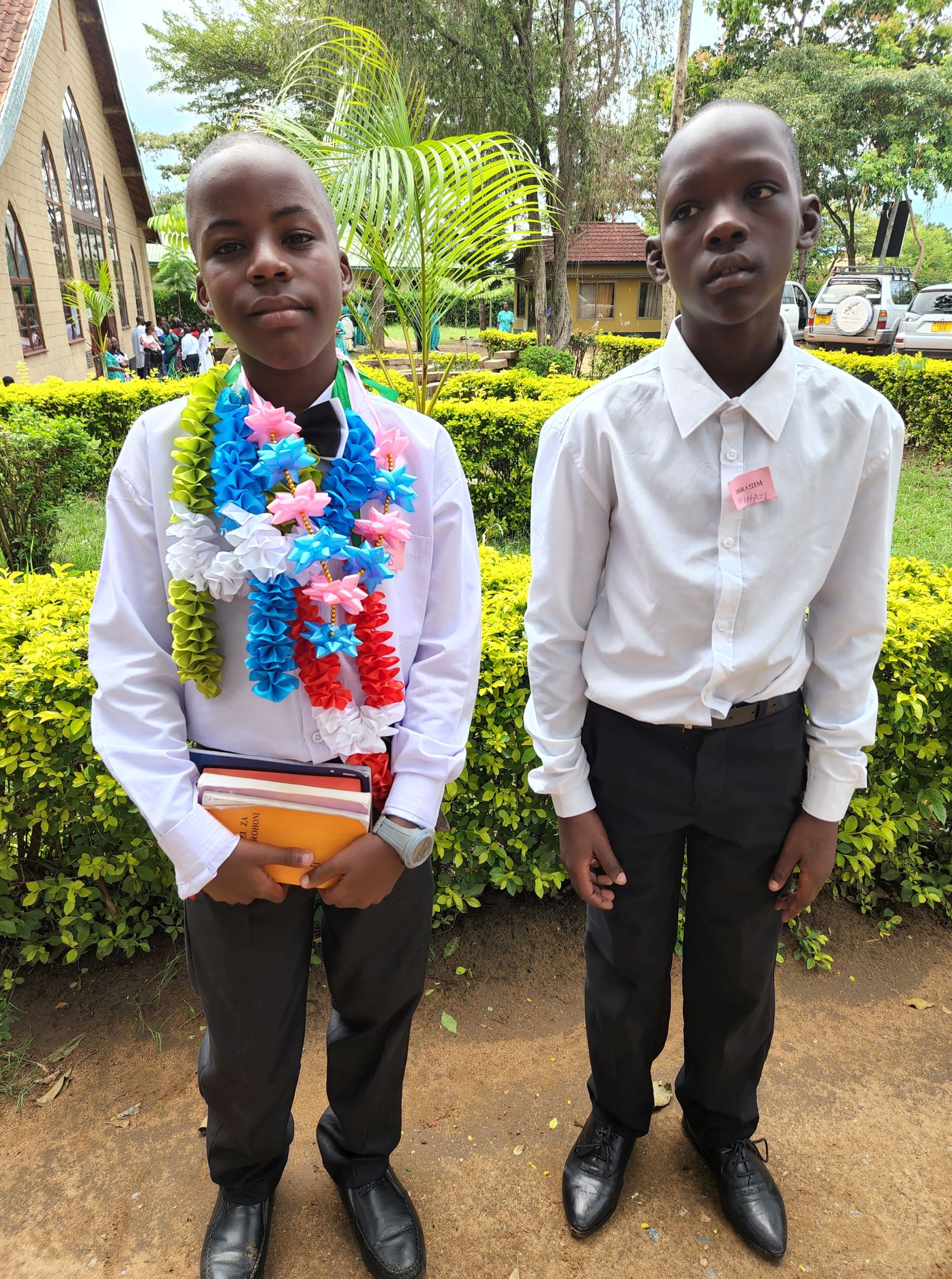
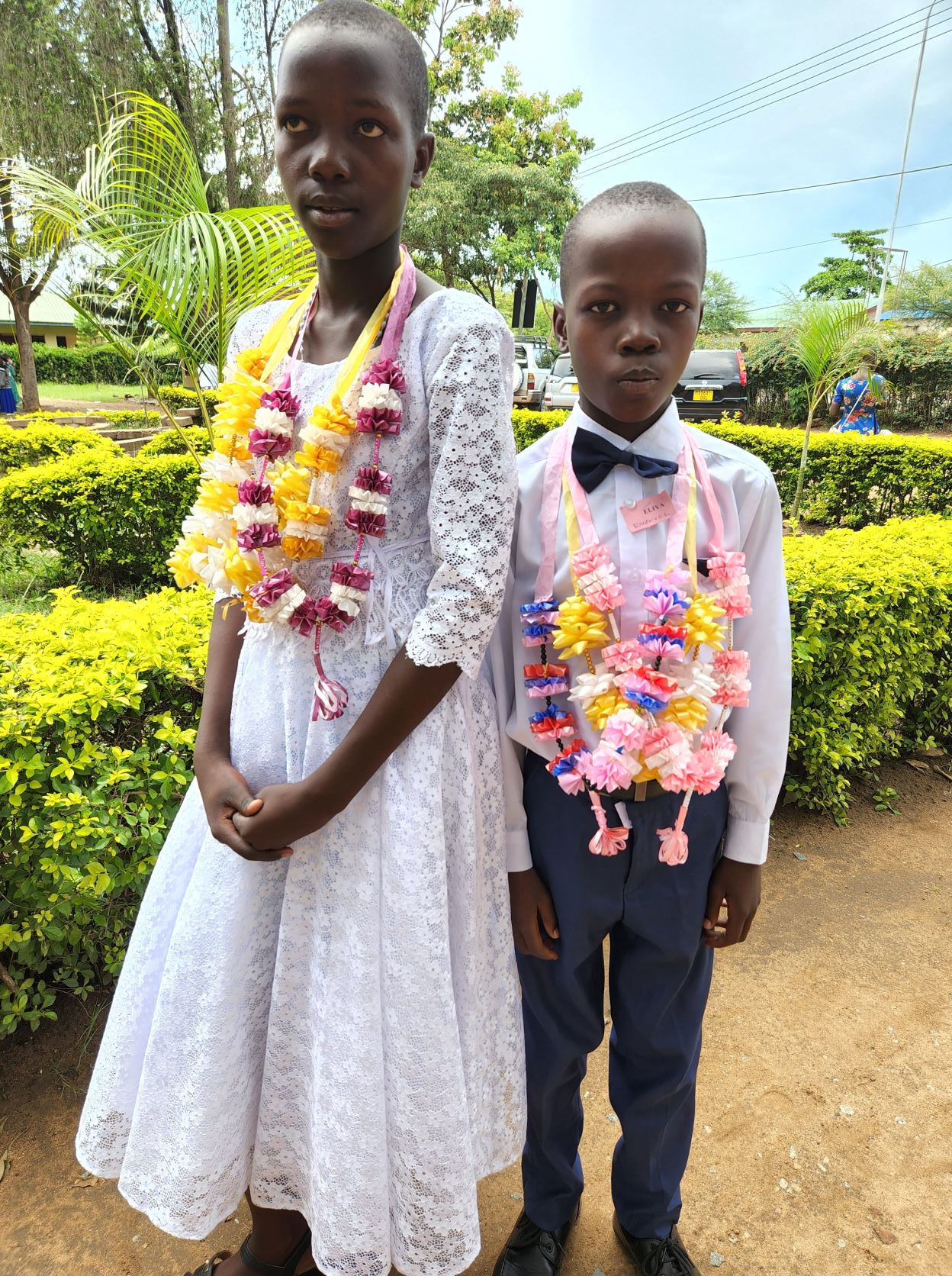
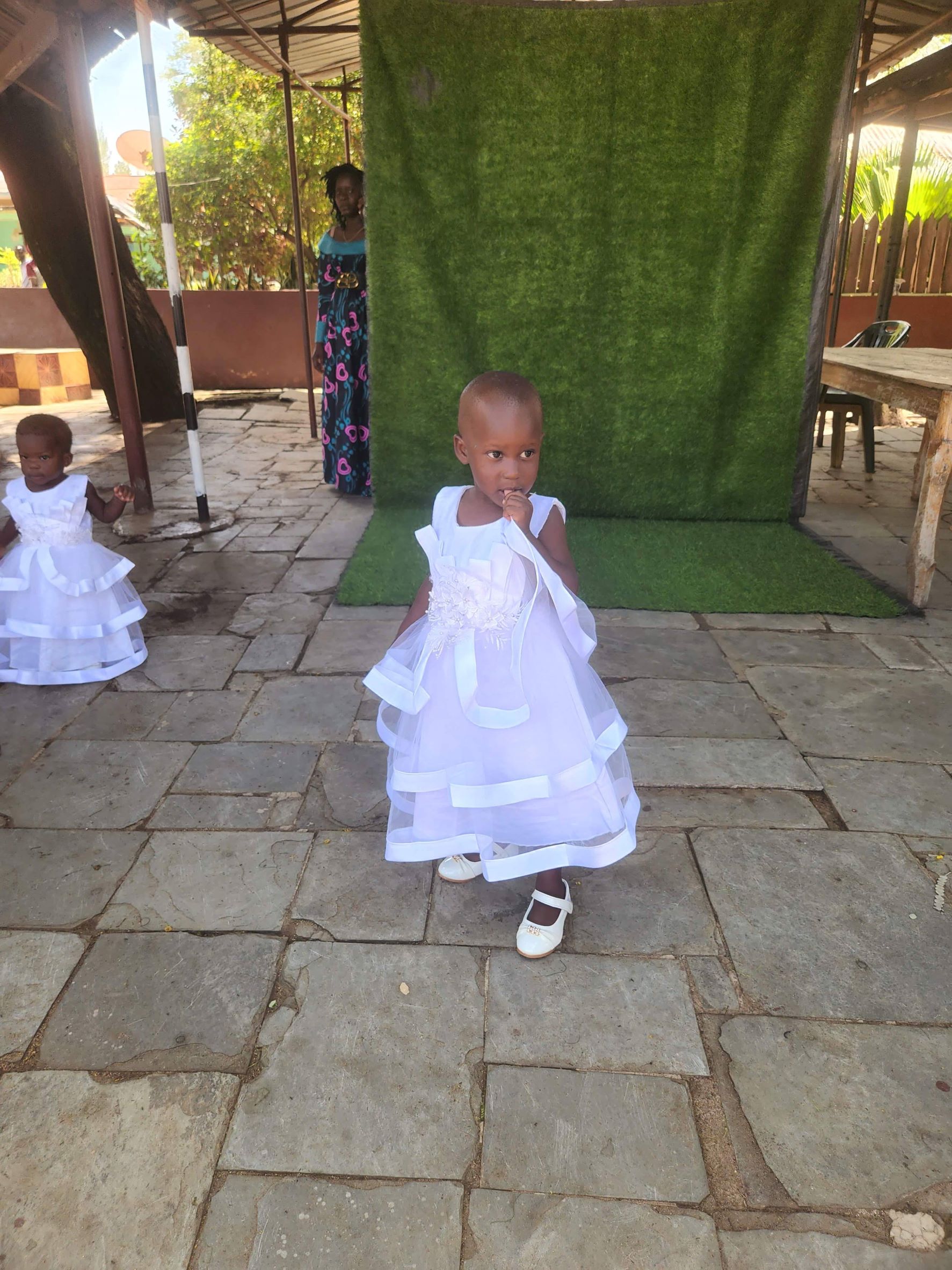
I was going to write about the work day routines and diet but will leave that for next week.
